
meatbusinesspro.com $7.99 THE BEEF, PORK & POULTRY INDUSTRY DIGITAL MAGAZINE December 2022 INDO-PACIFIC STRATEGY TO SUPPORT GROWTH AND PROSPERITY Exploring Halal Opportunities in a Growing Market Report Developed for the National Workforce Strategic Framework Ag Canada Launches African Swine Fever Prevention and Preparedness Program FCC: Farm Equipment Market Adjusting to Economic Environment End of Year Wrap Up for Agriculture 2022

https://www.yesgroup.ca

5 6 8 10 12 14 16 18 20 22 24 Banff Pork Seminar Launches 2023 Event with a Twist Canada’s Indo-Pacific Strategy to Support Growth and Prosperity Exploring Halal Opportunities in a Growing Market Report Developed for the National Workforce Strategic Framework Dr. Bob Johnson Joins World Technology Ingredients December 2022 Veterinary Professor Launches Bovine Health Podcast Ag Canada Launches African Swine Fever Prevention and Preparedness Program BCRC Appoints New Executive Committee FCC: Farm Equipment Market Adjusting to Economic Environment Meat Companies Fill the “Protein Gap” to Help End Hunger in U.S. End of Year Wrap Up for Agriculture 2022
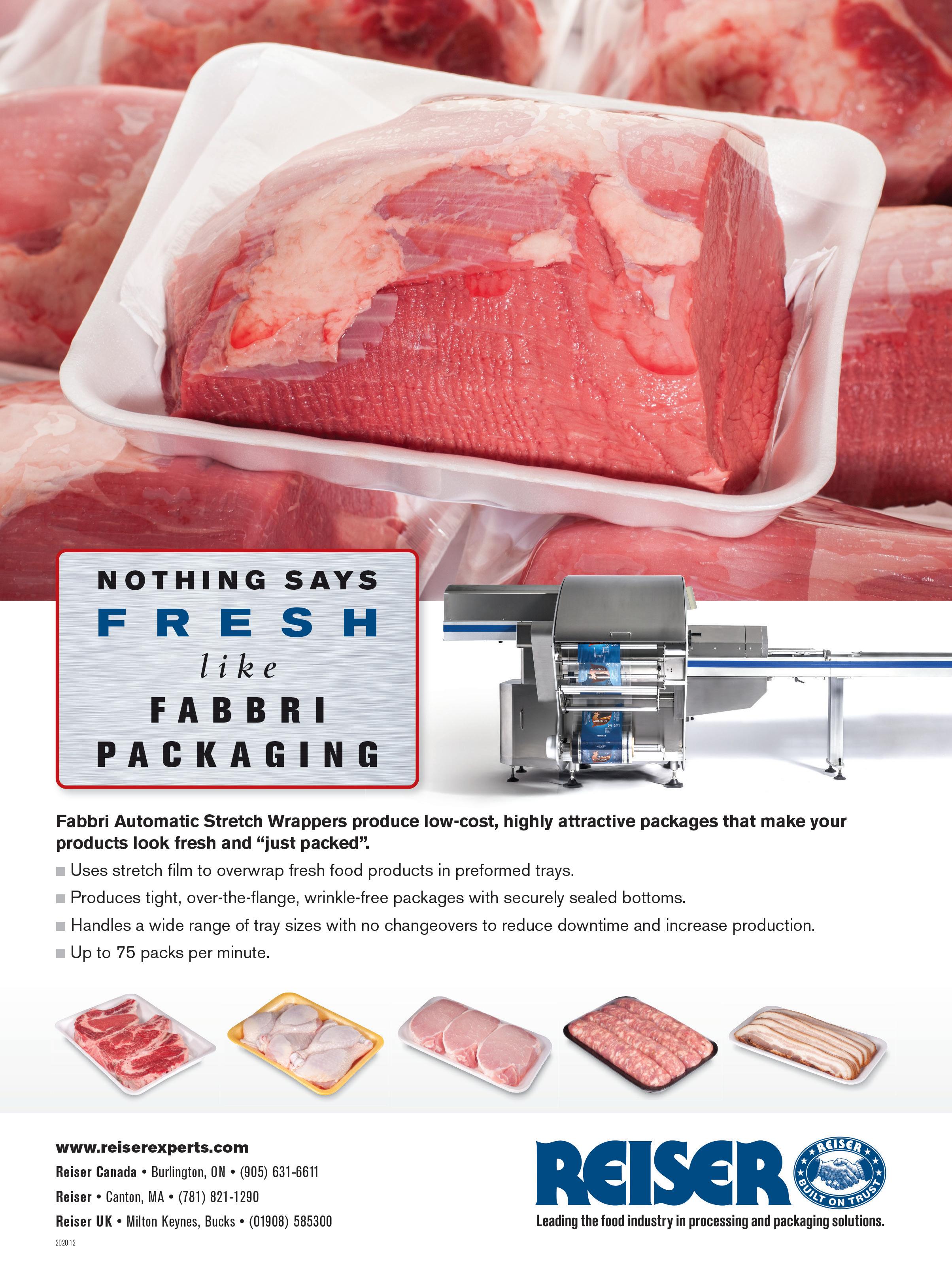
https://www.yesgroup.ca
PUBLISHER
Ray Blumenfeld ray@meatbusiness.ca
MANAGING EDITOR
Scott Taylor publishing@meatbusiness.ca
DIGITAL MEDIA EDITOR
Cam Patterson cam@meatbusiness.ca
CONTRIBUTING WRITERS
Cam Patterson, Jack Roberts, Ehsan Sairally, Taylor Brown
CREATIVE DIRECTOR
Patrick Cairns
Meat Business Pro is published 12 times a year by We Communications West Inc
CO MMUNICATIONS W EST IN C
We Communications West Inc.
106-530 Kenaston Boulevard Winnipeg, MB, Canada R3N 1Z4
Phone: 204.985.9502 Fax: 204.582.9800 Toll Free: 1.800.344.7055
E-mail: publishing@meatbusiness.ca Website: www.meatbusinesspro.com
Meat Business Pro subscriptions are available for $28.00/year or $46.00/two years and includes the annual Buyers Guide issue.
©2020 We Communications West Inc. All rights reserved.
The contents of this publication may not be reproduced by any means in whole or in part, without prior written consent from the publisher.
Printed in Canada. ISSN 1715-6726
BANFF PORK SEMINAR LAUNCHES 2023 EVENT WITH A TWIST
The Banff Pork Seminar (BPS) 2023 is open for business and delegates to the event scheduled for January 10 to 12, 2023 will find a new twist to an old format. The event will be back to in-person only, but in a revised approach, delegates will have an opportunity to view taped plenary and breakout presentations online on-demand afterwards.
“We always bring in top speakers and this is one way delegates can be sure they get every bit of information from these industry leading presenters,” says Ashley Steeple, BPS Coordinator.
Expectations are high for a vibrant social time as well, adds Steeple. “The past few years have dramatically cut into the opportunity to be together as an industry. We are already seeing strong hotel bookings and related events being planned around the Seminar week.”
Program and registration details are posted on the BPS hub, the Seminar website www.banffpork.ca. In fact, that’s the best place to follow the latest news on all developments as the Seminar nears, says Steeple.

Ongoing news postings will be available in the annual Inside BPS Special Report which can be accessed by link from the Seminar website. That information of blog postings and news releases is designed to be available for use by media and industry.
Delegates are encouraged to follow BPS on Twitter, adds Steeple. “It is a real bonus to have BPS delegates help in tell the story of modern pork production by posting their experiences and knowledge from BPS 2023 with the #BanffPork hashtag.”
The Banff Pork Seminar is coordinated by the Department of Agricultural, Food and Nutritional Sciences, University of Alberta, in cooperation with Alberta Pork, Alberta Agriculture and Forestry and other pork industry representatives from across Canada.

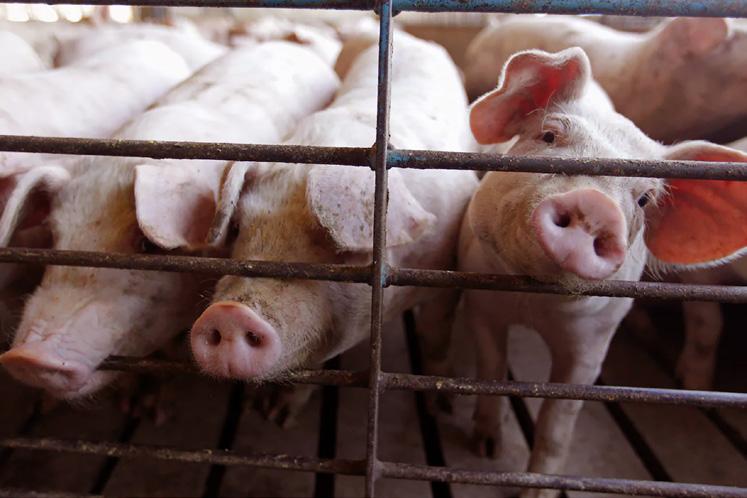
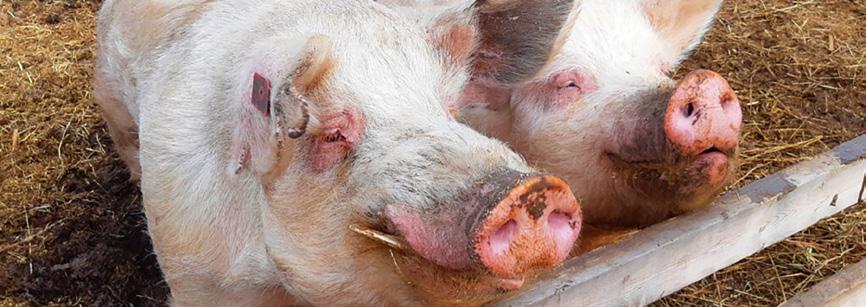
For more information contact Ashley Steeple, Banff Pork Seminar, Phone (780) 492-3651, Email: pork@ualberta.ca or visit www.banffpork.ca

5 meatbusinesspro.com December 2022 MEATBUSINESSPRO December 2022 Volume 26 Number 12
THE BEEF, PORK & POULTRY INDUSTRY DIGITAL MAGAZINE
CANADA’S INDO-PACIFIC STRATEGY TO SUPPORT GROWTH AND PROSPERITY




The Minister of Agriculture and Agri-Food, MarieClaude Bibeau, met with agriculture stakeholders including the Canadian Cattle Association and several Canadian agriculture associations recently to discuss the Government’s new Indo-Pacific Strategy (IPS).
They discussed the IPS, and the landmark announcement that comes with it: Canada’s first ever Indo-Pacific Agriculture and Agri-Food Office (IPAAO).
With $31.8 million earmarked in dedicated funding, this new office will enable Canada to engage with stakeholders, regulatory counterparts, and policy decision-makers to deepen partnerships with IndoPacific economies that value sustained, meaningful relationships, collaboration and the sharing of expertise.
“We look forward to expanding export opportunities in the Indo-Pacific region for our world-renowned, high-quality Canadian beef. “We are proud of our role in sustainably producing a nutritious protein source for tables at home and abroad”, said Ryan Beierbach, Canadian Cattle Association Director.
Expanding our presence in the Indo-Pacific will help Canadian farmers, food processors and exporters maximize their opportunities and position Canada as a preferred supplier in key emerging markets. The IndoPacific encompasses more than 40 economies and is the fastest growing region in the world. It is Canada’s second-largest regional export market and trading partner (after the United States), with $26.5 billion in annual two-way agri-food and seafood trade in 2021. The new IPAAO will be well-positioned to help Canada expand trade, investment and supply chain resilience, one of five strategic objectives for Canada under the new Indo-Pacific Strategy, alongside promoting peace, resilience and security; investing in and connecting people; building a sustainable and green future; and ensuring Canada remains an active and engaged partner.
Todd Lewis, 2nd Vice President of the Canadian Federation of Agriculture, stated “The Indo Pacific Strategy will open up new markets for agricultural exports, while allowing Canada to solidify its role as a global food supplier in a time of mounting global food insecurity. Measures like the Indo-Pacific Agricultural
6 MEATBUSINESSPRO December 2022 meatbusinesspro.com
and Agri-Food Office are critical to making meaningful strides in markets around the world, by ensuring Canadian agriculture has a strategic presence in what is a critical market for Canadian producers.”
Canada, including agriculture and agri-food, where regional demand is strong and growing.

QUICK FACTS
• The Indo-Pacific encompasses more than 40 economies, including six of Canada’s top 13 trading partners: India, Japan, People’s Republic of China, Republic of Korea, Taiwan and Vietnam. The region’s economies accounted for 24 per cent of Canada’s total agri-food and seafood exports in 2021.


Every issue that matters to Canadians – our national security, economic prosperity, democratic values, public health, the quality of our environment, human rights –will be shaped by developments in this region, and the relationships Canada has with its Indo-Pacific partners. The IPS is a roadmap to deepen Canada’s engagement in the Indo-Pacific over the next decade. Our commitments and contributions under this framework will bring benefits to a range of strategic sectors for
• Today, the Indo-Pacific makes up more than one-third of all global economic activity and accounts for 65 per cent of the global population. By 2030, it will be home to two thirds of the global middle class. By 2040, the Indo-Pacific region will account for more than half of the global economy.
• The Indo-Pacific region will play a hugely consequential role in achieving the Government of Canada’s goal of $95B in agricultural sector export revenues by 2028.
7 meatbusinesspro.com December 2022 MEATBUSINESSPRO
VEMAG REPLACEMENT PARTS https://www.dhenryandsons.com
EXPLORING
By Ehsan Sairally, Halal Product Development

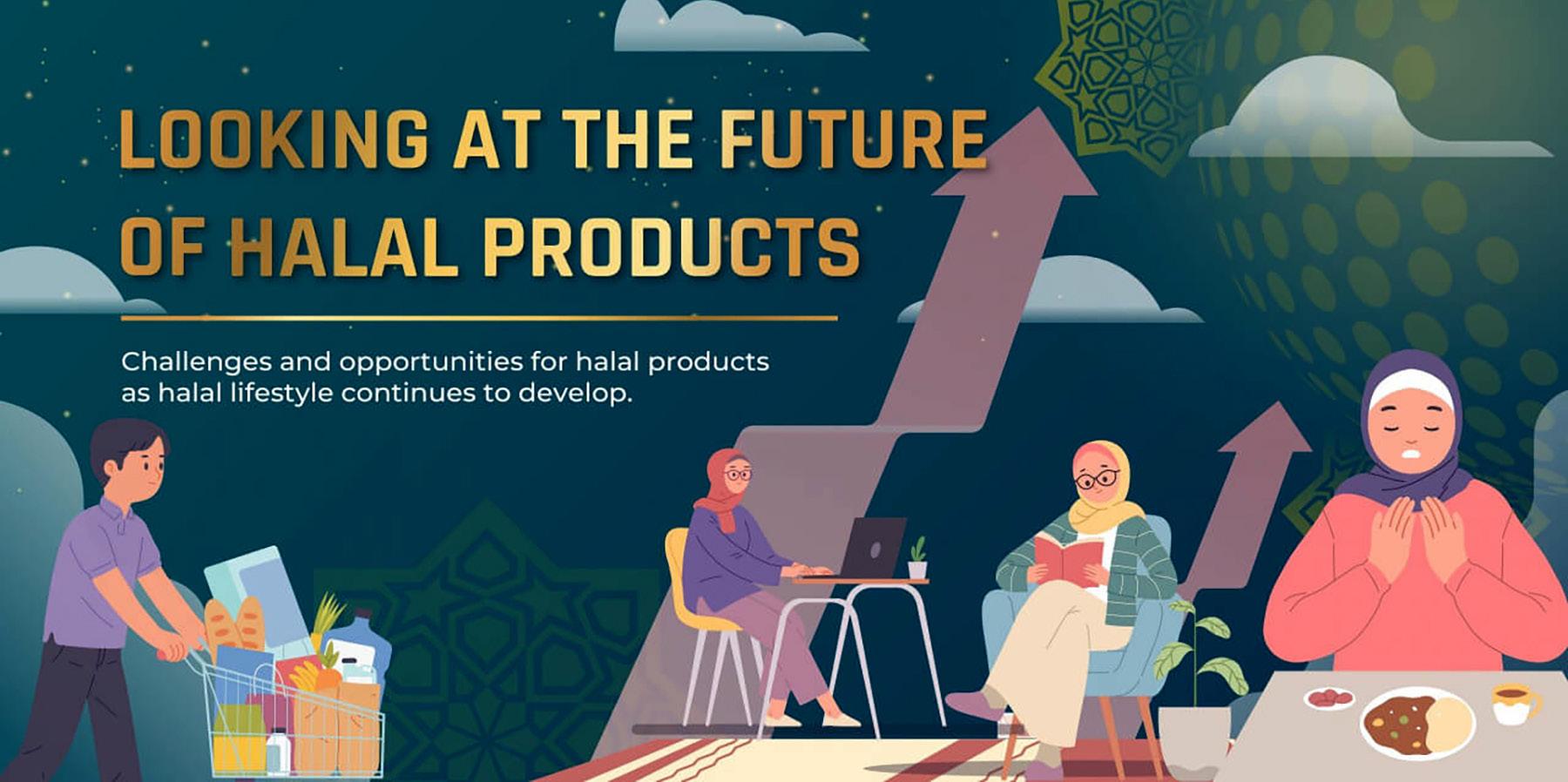
The scope and sphere of the food manufacturing/ processing sector continues to adjust to dynamic changes in the marketplace. Various issues are coming together to shape food buying habits including demography, culture, ethnicity, religion, healthy lifestyles, and environmental concerns.

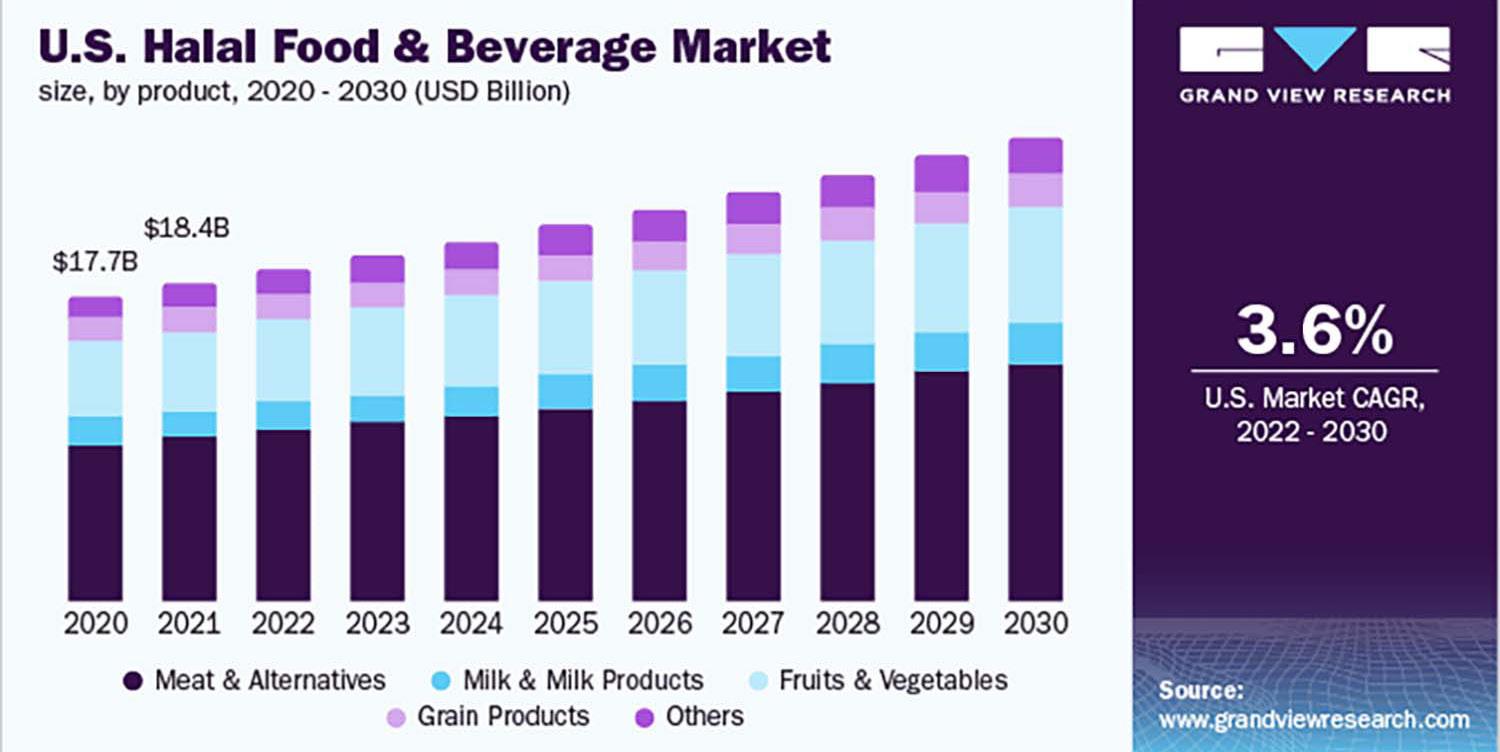
Consumers are not only interested in what they eat. They are interested in where food comes from and how it’s processed and manufactured.
Suppliers are taking notice of this complex scenario and the new doors and avenues that need to be explored. A case in point is the opportunities presented by the growing halal market
Halal fits right into the equation of this demanding market. Halal is not a new food concept. It has been around for over 1400 years and encompasses cuisines from Africa, Asia, Europe, North America, India, and Russia.
The rich history of the halal food concept is steadily finding its way into the mainstream market in North America. It is no longer just an ethnic niche market. Halal foods by their very nature have universal appeal not only with meat products but with other food
Halal cuisine is gaining awareness and is ready to be explored on regional and international levels. The demand for healthy, natural, and nutritious food is definitely on the priority list for global and regional consumers.

8 MEATBUSINESSPRO December 2022 meatbusinesspro.com
Satisfies growing base of informed consumers with large purchasing power Provides variety and choice Eco and environment friendly Fair treatment of animals Natural and healthy quality ingredients • Increased consumer confidence • Optimize and increase production • Deliver value and transparency • Clean label and healthy alternative • Minimum investment and minimum adjustment
OFFERED BY HALAL FOODS:
BENEFITS
HALAL
A GROWING
OPPORTUNITIES IN
MARKE
• Airlines
• Hotels and restaurants
• Catering and special functions
• Halal travel and tourism
• University and school system
• Hospitals
• Beauty healthy products

NSF INTERNATIONAL FOCUSES ON CANADIAN FOOD INDUSTRY WITH NEW WEBSITE FOR SERVICES IN CANADA

• Pharmaceutical products
• Industrial canteens
Global
• Franchise operations


• Nutraceutical and sports products
As more and more companies are seriously looking at entering the halal market, they are finding the transition can be made with minimal changes to their existing manufacturing procedures. Many companies are already halal compliant and they may just require certification to enter the market. The halal market is growing and worth exploring
accredited International Association for Continuing Education and Training (IACET) site. Topics include HACCP, food safety and quality, GFSI benchmarked standards, regulations (including FSMA), food science, food packaging, food microbiology and ISO standards. Training modalities include eLearning, on-site, customized and open enrolment.
For more information regarding halal certification, contact, Halal Product Development Services (HPDS) at (416) 5681885 or email ehsan@halalproductservices.com.
Additionally, the website includes information about management system registrations for the food, automotive, environmental, information security, medical devices, aerospace and chemical industries, as well as for Ontario drinking water programs.

Halal Product Development Services (HPDS) is a member of the World Halal Council (WHC) and Association of American Halal Certifiers (AAHC).


Visit the new Canadian website at www.nsfcanada.ca to review the food safety services capabilities video, find a list of Canadian food experts, learn about upcoming events and global news releases, submit a question or read
minimum investment and minimum adjustment to existing GMP and HACCP procedures. Companies who are already engaged in halal production know the unlimited potential of this lucrative market. To navigate this market, halal compliance may only require minor changes to existing manufacturing and processing protocols.
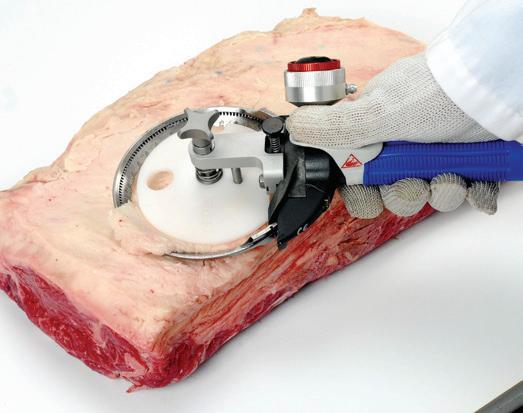

on the following services:
Certification & auditing: Third-party food safety audits and certifications, which are integral components of supplier selection and regulatory compliance. Accurate audits are the first step toward successful verification of a company’s food safety system, providing improved brand protection and customer confidence. Certifications and audits are available for animal and produce in the agriculture industry, GFSI certification and management system registration.
As the halal concept continues gaining momentum throughout the world, non-halal consumers are increasingly being attracted. The reason is that halal food is regulatory compliant, safely produced and packaged, and consist of high-quality natural ingredients. In addition, they are cost efficient to produce.

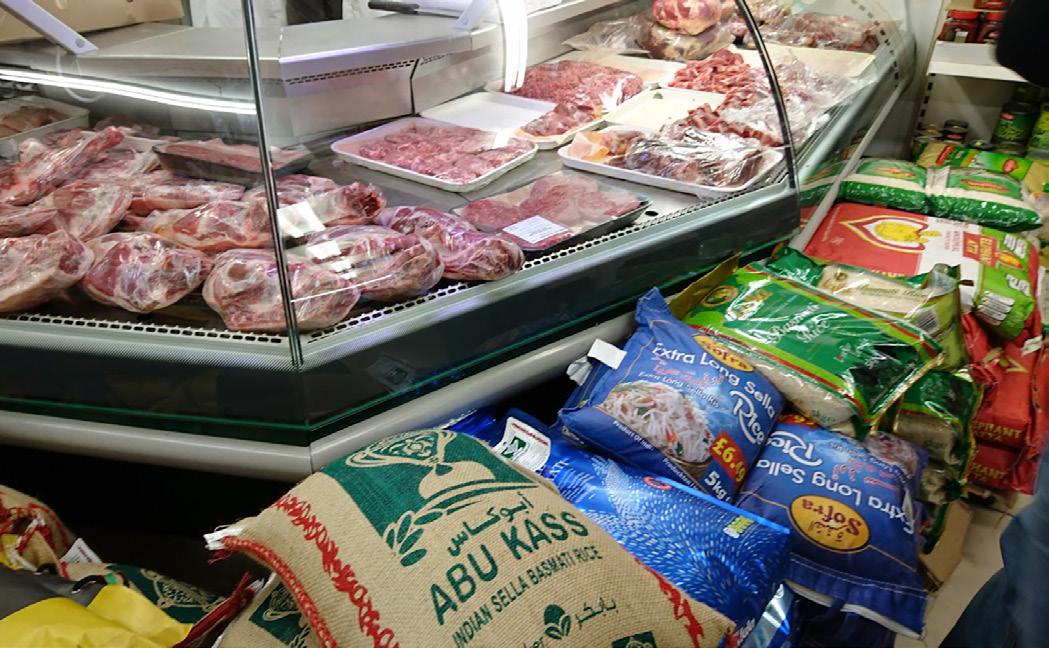
Consulting: A full-service team approach providing technical resources, expertise and insight for a wide range of food safety and quality services. NSF International provides finished product inspection testing for food, packaging and non-food testing for rapid analysis and insight to protect the brand, technical support services from on-site temporary or permanent technical staffing placements, and various types of consulting.
Technical services: A one-stop solution for food product compliance and formulation, from concept to finished product, including food and label compliance, packaging, product and process development, and shelf-life and product evaluation.
The current estimated global halal market is now over $ 2.1 trillion and counting. It is an established and growing market. By 2025 halal consumers will account for over 30% of the global market. Halal opportunities are not just food related, they extend to pharmaceutical products, cosmetics, nutritional supplements, sports beverages as well as tourism and travel.

Training and education: Training for the global food and beverage industry across the supply chain as an

9 meatbusinesspro.com December 2022 MEATBUSINESSPRO
September/October 2017 CANADIAN MEAT BUSINESS 23 meatbusiness.ca YesGroup_CanadianMeatBusiness-Qtr-pg.pdf 1 2014-05-16 1:20:17 PM
NSF International in Canada recently launched a new website - www.nsfcanada.ca - to give Canada’s growing
public health organization showcases services for
food industry
SECTORS THAT CAN MUTUALLY ENHANCED HALAL FOOD BUSINESS:
Canada’s growing and fast-changing
https://www.yesgroup.ca
REPORT DEVELOPED FOR THE NATIONAL WORKFORCE STRATEGIC FRAMEWORK

The Canadian Agricultural Human Resource Council (CAHRC) and its partners the Canadian Federation of Agriculture (CFA) and Food and Beverage Canada (FBC-ABC) have released an interim report on the development of an industry-led National Workforce Strategic Framework for Agriculture and Food & Beverage Manufacturing.

Started in 2021 with funding from the Government of Canada’s Future Skills Centre, the National Workforce Strategic Framework will set out a comprehensive plan for Canada’s agriculture and food and beverage manufacturing sectors to achieve workforce stability by 2030. The Strategic Framework will identify the root causes of industry’s labour shortages and skills gaps, identify concrete actions to address these shortfalls, and set meaningful goals and timelines to measure our progress and success.
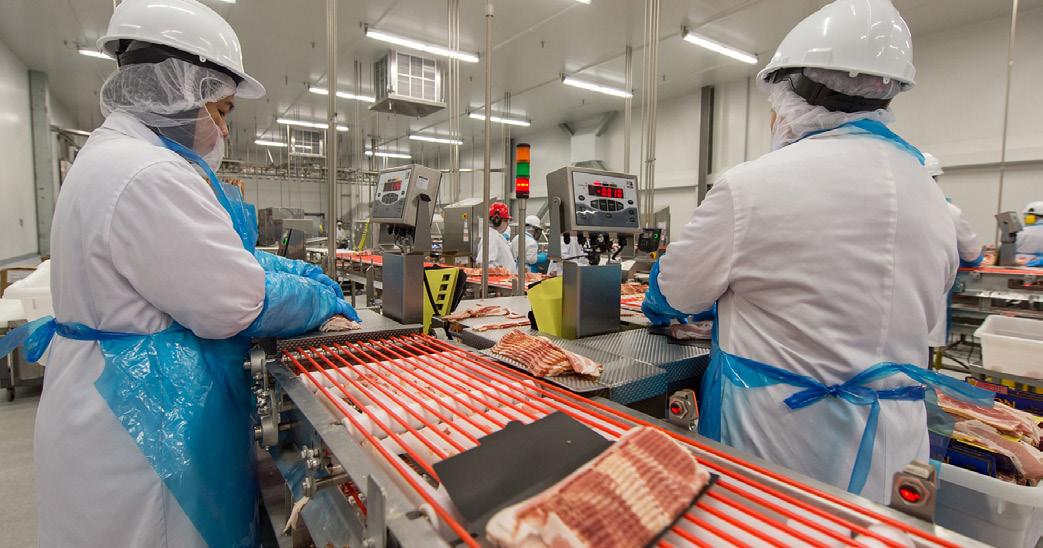
The Strategic Framework seeks to complement the efforts of the Government of Canada, including the development of a National Agricultural Labour Strategy by the Honourable Marie-Claude Bibeau, Minister of Agriculture and Agri-food.
To date, over 100 stakeholders have actively participated in this critical initiative, including primary producers, food and beverage manufacturers, educational institutions, producer groups, industry associations, and government officials.

Together, they are undertaking work around five key themes:
• Perception and Awareness of Industry and Careers • People and Workplace Culture • Immigration and Foreign Workers • Skill Development • Automation and Technology
THE INTERIM REPORT SETS OUT THE DETAILS OF THAT FRAMEWORK.
“The Canadian agriculture and food and beverage manufacturing sectors not only provide food to Canadians and the globe but are strong contributors to the Canadian economy,” said Paul Glenn, Chair of the Canadian Agricultural Human Resources Council. “Growing chronic labour shortages impact the success and viability of these sectors. Bringing industry together to work to identify and address these workforce challenges will enable the sector continue to prosper
10 MEATBUSINESSPRO December 2022 meatbusinesspro.com
"In light of the chronic labour shortages that have constrained Canadian agriculture for years, with those pressures only expected to increase, a systemic and strategic response to the workforce challenges throughout the value chain is critical,” said Mary Robinson, President of the Canadian Federation of Agriculture. “This innovative, stakeholder-led approach will be instrumental if we are to realize the sector’s full potential as a global leader in the supply of sustainable, quality agriculture and food products”.
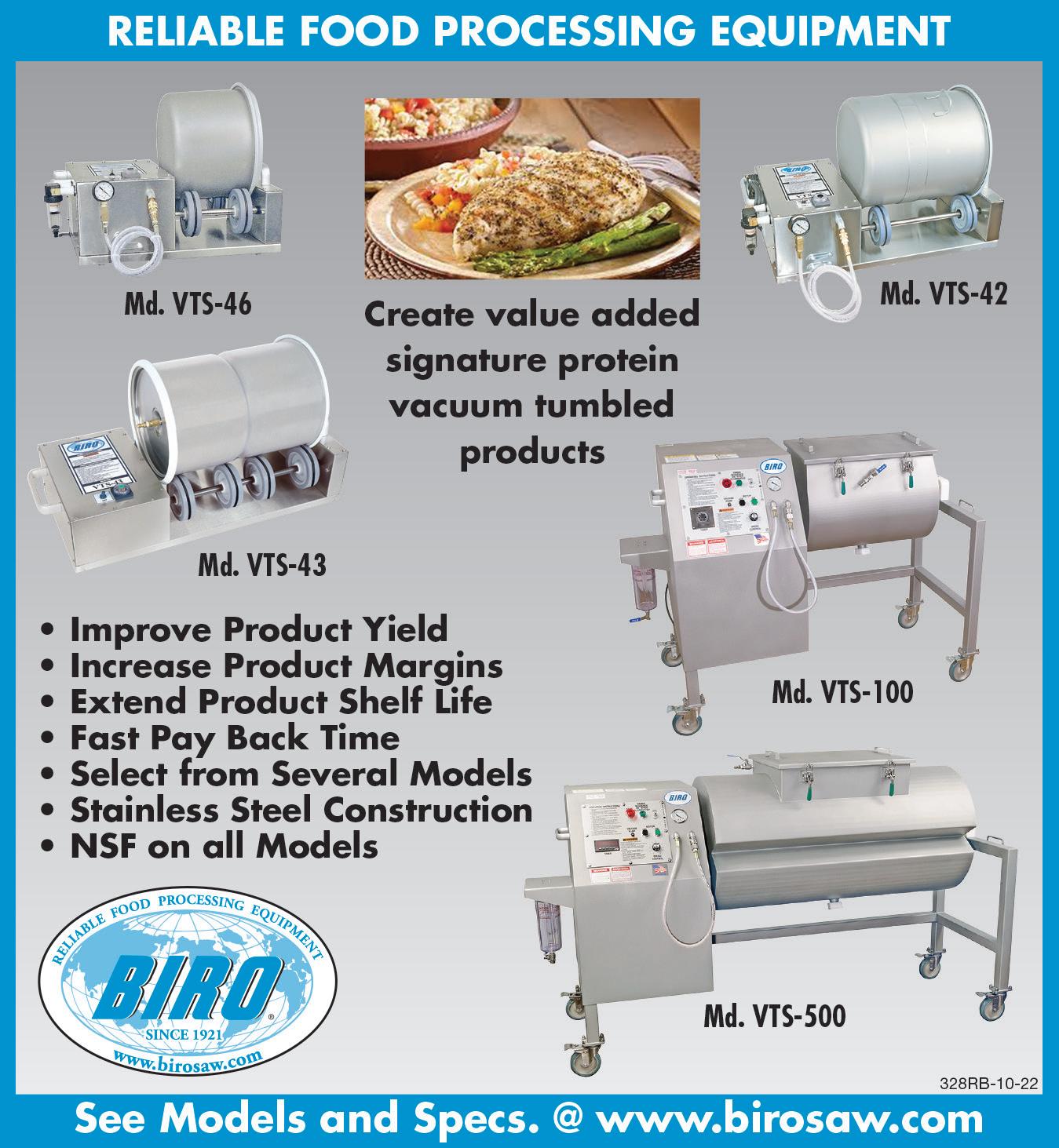
“Food and beverage manufacturers, Canada’s largest manufacturing employer, are short an average of 20 per cent of their workforce,” said Kathleen Sullivan, CEO of Food and Beverage Canada. “This project is proving to be a critical exercise in bringing together industry to examine the cause of these shortages, and to identify meaningful industry and government actions to resolve this significant issue impacting Canada’s food system. The interim report is the result of a collective effort to identify how we can ensure industry has the skilled workforce needed to meet Canada’s food needs.”
“Having a strategic framework to look at the workforce challenges in agriculture, food and beverage manufacturing sectors is crucial to address growing shortages of labour on which all Canadians depend,” said Pedro Barata, Executive Director of the Future Skills Centre. “This is a perfect example of the programs FSC is investing in so that traditional industries such as these can find pathways to address chronic skills gaps and labour shortages and facilitate progress by bringing multiple stakeholders together. We’re pleased to support this initiative that will help employers and workers identify solutions to stabilize these industries for the future.”
The National Workforce Strategy for Agriculture and Food and Beverage Manufacturing project is funded by the Government of Canada’s Future Skills Centre. For more information, visit http://www.cfa-fca.ca/



11 meatbusinesspro.com December 2022 MEATBUSINESSPRO
DR.
BOB JOHNSON
JOINS WORLD TECHNOLOGY INGREDIENTS

World Technology Ingredients, Inc. (WTI) has announced that Dr. Bob Johnson has joined their team as Vice President of Technical Business Development.


“We are excited to have Bob on our team. He will help create additional value for our customers, support key internal stakeholders and focus on growing new market segments,” said Ralf Ludwig, Owner and President of WTI.
Johnson has decades of experience in the meat industry ranging from operations, QA, tech services and primarily R&D and Food Safety at a time when zero pathogen tolerance and HACCP were introduced. His approach of partnering with and challenging innovative suppliers led to pre-converted, quantifiable Nitrate to Nitrite (natural, alternative cure) and clean label vinegar and lemon juice (flavor, freshness and pathogen reduction). These breakthrough discoveries have become the industry standard. Further, in an ingredient supplier role, Johnson supported customers globally via identification and implementation GMP/ Best Practices strategies, managed significant national accounts and developed technical rapport directly with end user accounts (restaurant chain and distributors) to create ingredient demand.
Johnson routinely reflects on a conversation early in his career he had with Jimmy Dean. They were discussing R&D projects classed as “cost optimization”, Jimmy said. “I would rather justify the price than apologize over the quality”. Very few words, yet very powerful which served as a foundation for him always seeking to understand “price versus cost”.
Johnson graduated from Purdue (B.S. Food Science), Kansas State (M.S. Meat Science) and Iowa State, Ph.D. (Meat Science).

He resides in Wisconsin with his wife and is a passionate outdoorsman.
About World Technology Ingredients, Inc. (WTI)
WTI has been leading the functional food ingredient industry for over 30 years, producing naturally derived, patented, and performance-validated food ingredients that are simple, clean, and safe. WTI first entered the ingredients market in 1989, with the introduction of Myosol®, a liquid phosphate. Since then, WTI has remained committed to delivering simple, clean, and safe high-performing products and solutions that lead functional food ingredient innovation with integrity. The global company is headquartered in Jefferson, GA with a subsidiary in Germany.


12 MEATBUSINESSPRO December 2022 meatbusinesspro.com
https://www.beaconmetals.com

VETERINARY PROFESSOR LAUNCHES BOVINE HEALTH PODCAST
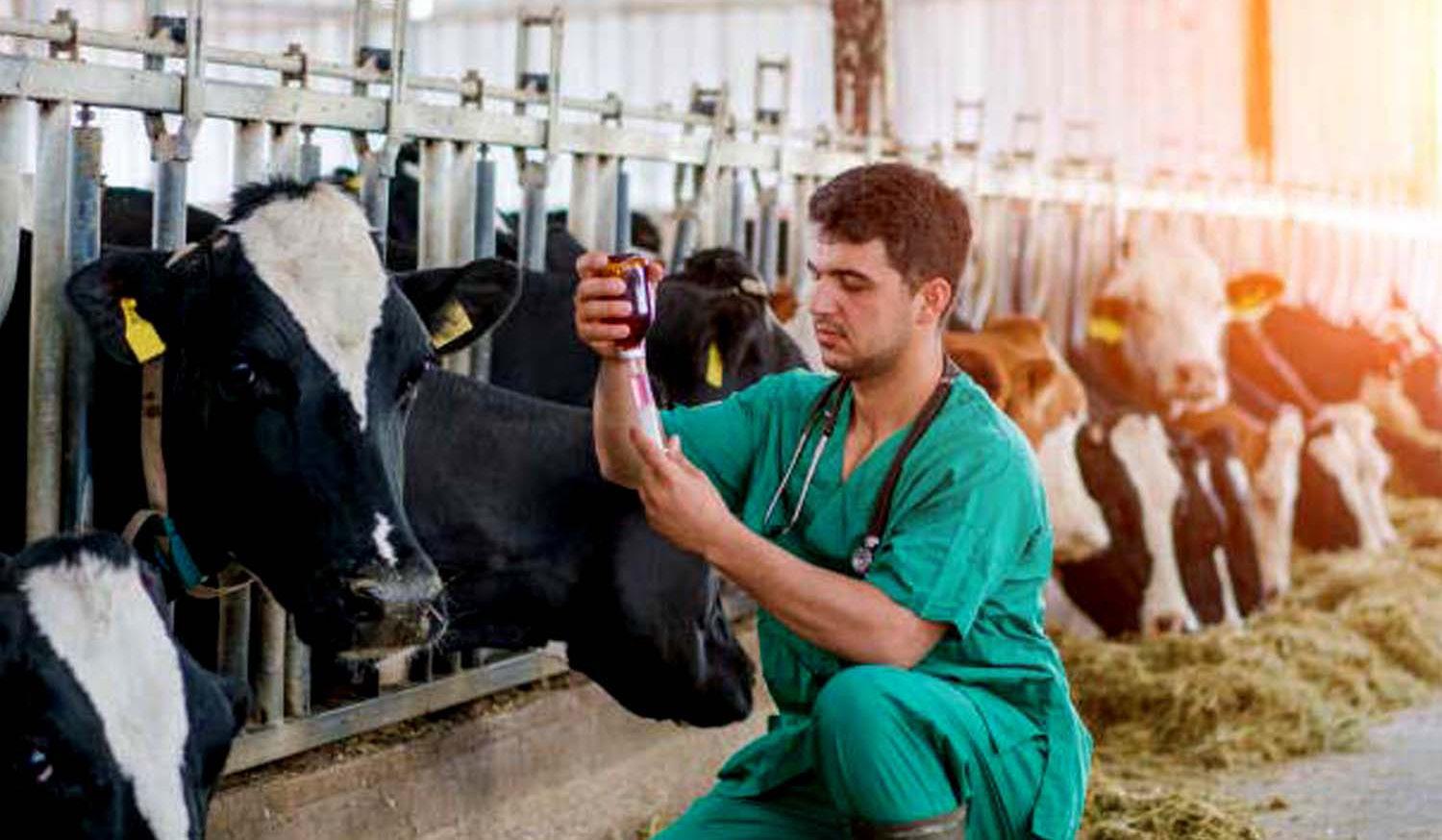
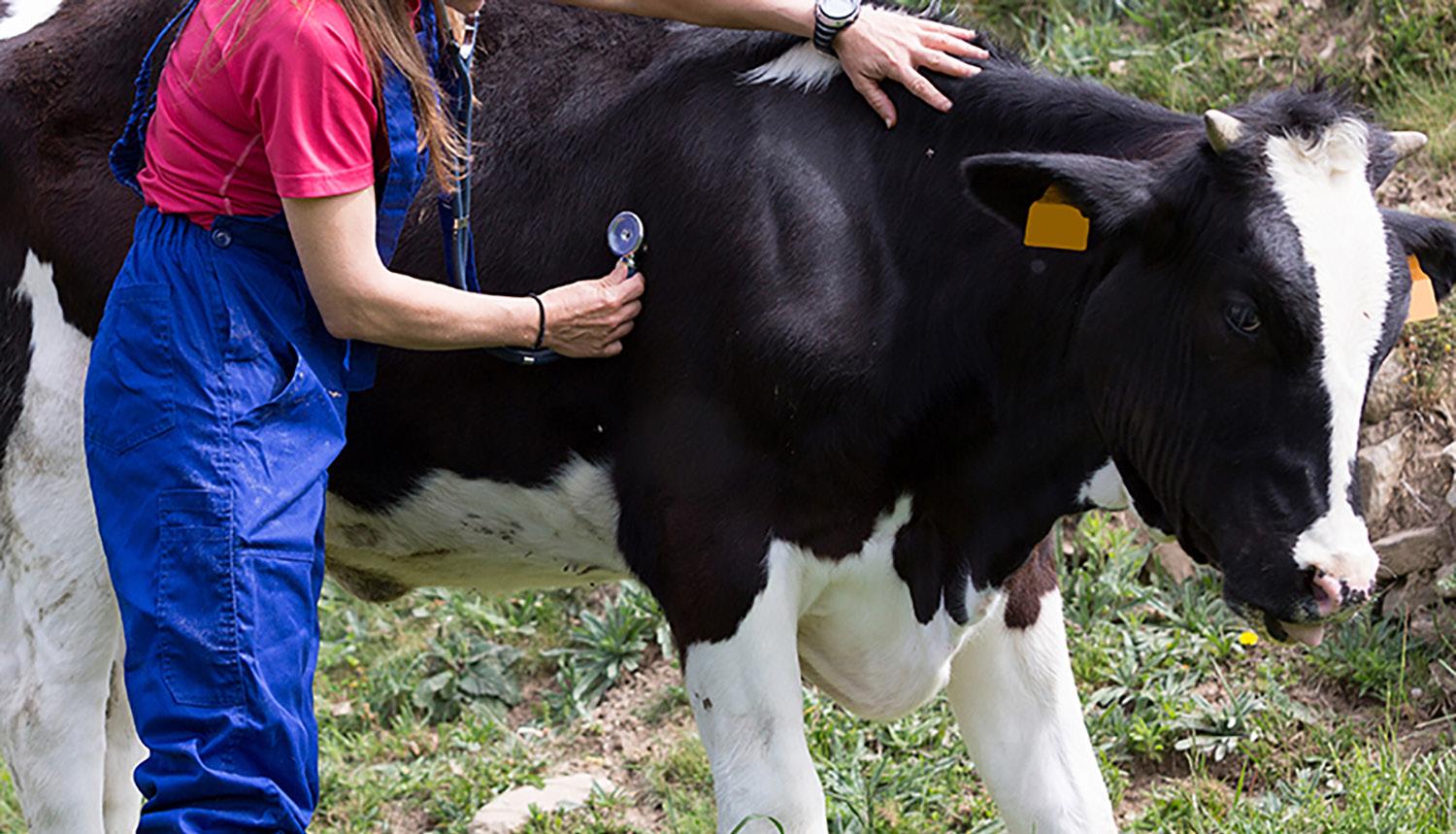
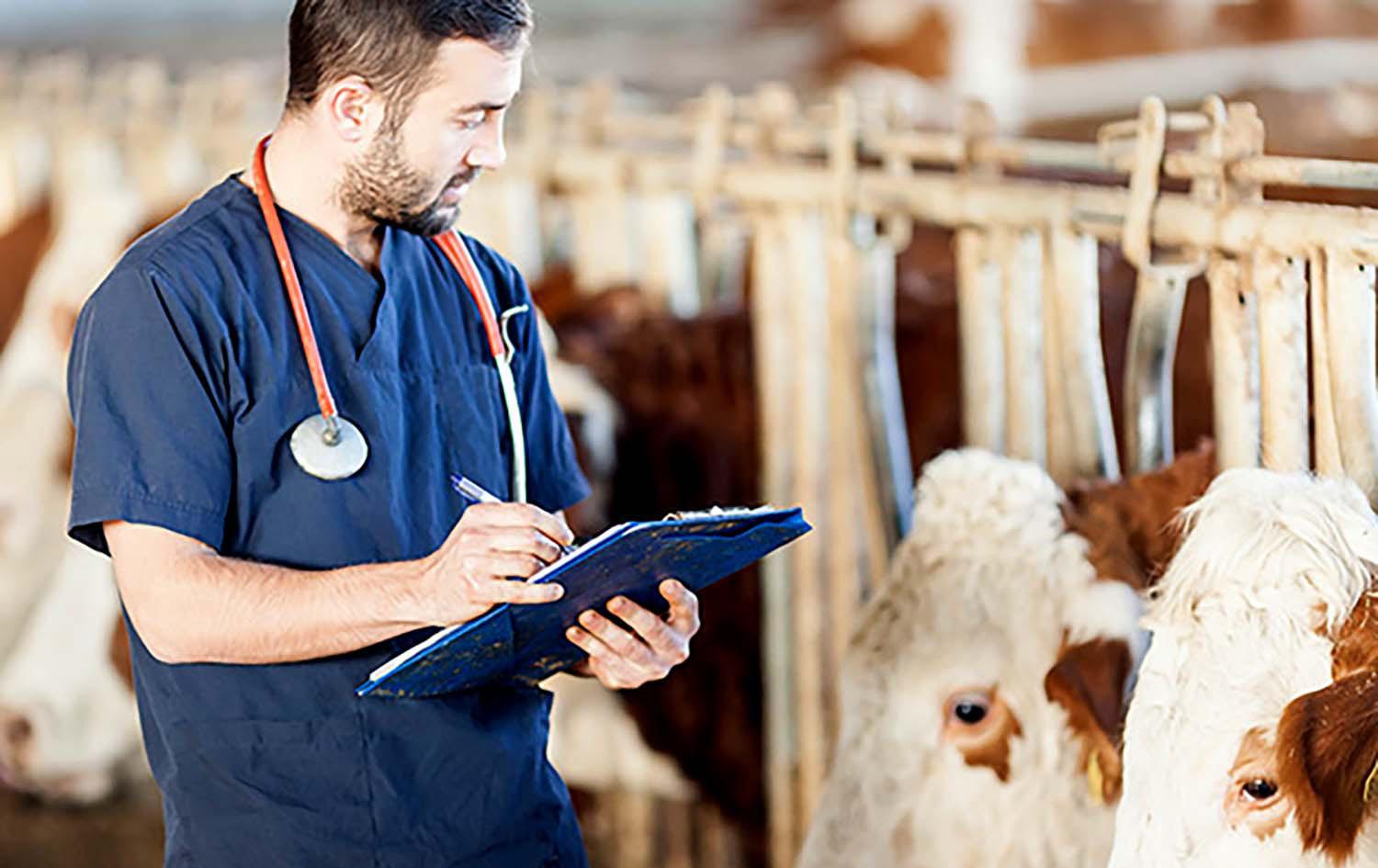
A University of Saskatchewan (USask) beef cattle specialist at the Western College of Veterinary Medicine (WCVM) has launched a new podcast that gives listeners a Canadian perspective on beef cattle health and nutrition.

Dr. John Campbell (DVM), whose research interests include beef cattle and health management, posted the first episode of his Beef Cattle Health and Nutrition podcast on Oct. 31.
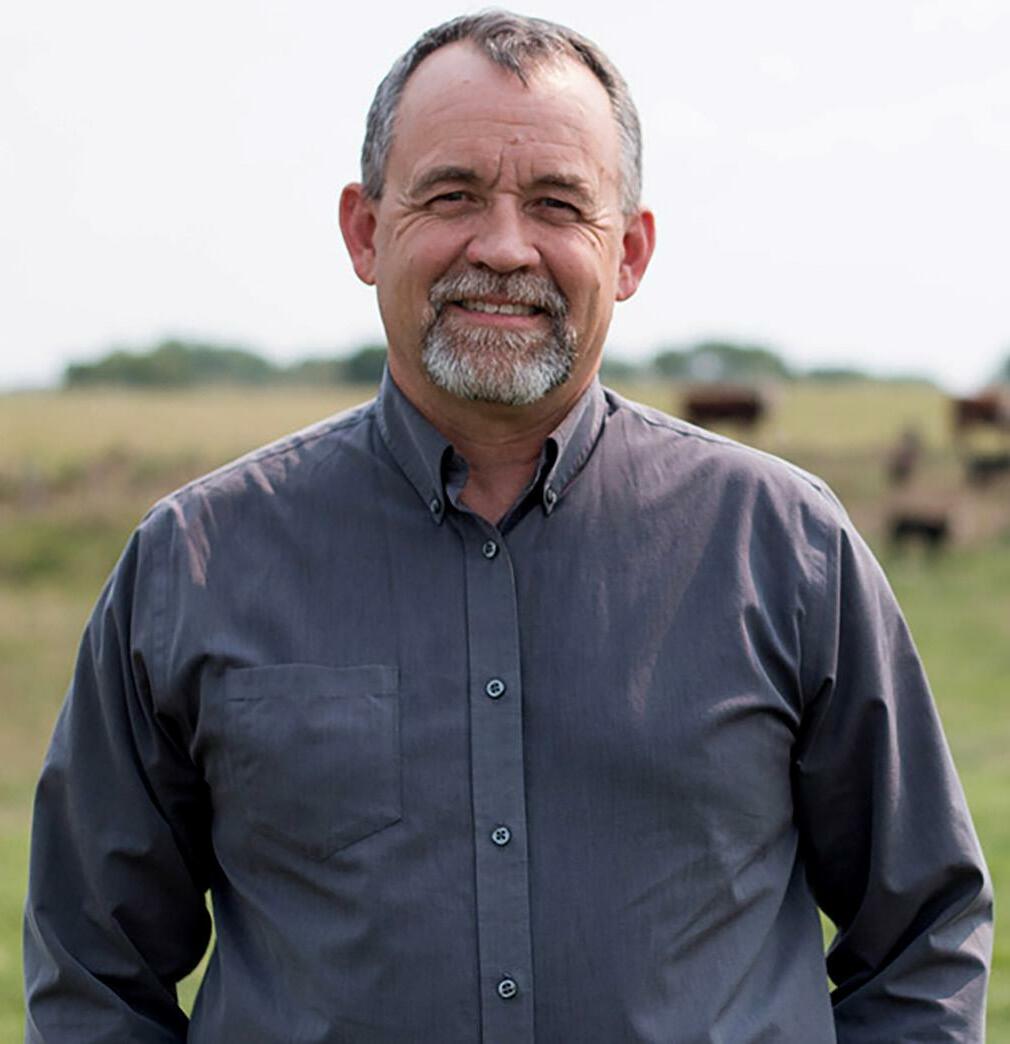

“I’ve always been interested in knowledge translation,” said Campbell, a professor and researcher in the WCVM’s Department of Large Animal Clinical Sciences. “I’ve had lots of mentors over the years that showed me the importance of that.”
“I just saw the importance of that and how that was part of not just doing the research, but trying to get it out to people,” said Campbell, who also writes beef cattle health articles for a regular column in The Western Producer. “[The podcast] is just another way that people can learn some of the things that we’re discovering through research.”
What helps to differentiate this podcast from others is that Campbell and his guests give a Canadian perspective on specific animal health and nutrition topics that are of interest to beef producers.
Campbell credits his interest in knowledge translation— or interpreting and sharing research findings with producers and the public—to Drs. Eugene Janzen (DVM), Paul Greenough (DVM) and Ray Butler (DVM), all former faculty members at the WCVM who Campbell worked with when he was a new faculty member more than three decades ago.
14 MEATBUSINESSPRO December 2022 meatbusinesspro.com
“It’s nice to get the research out there and the knowledge out there that we’re generating here in Canada out to our producers as well,” said Campbell. “There’s certainly lots of things we can learn from our colleagues in the U.S. as well—our systems are similar. But there are some differences, and most of those are geographic and [about] what we feed and how we manage our cattle.”
Campbell hopes to release podcast episodes weekly and plans “to cover a gamut of health and nutritional topics.” So far, the podcast’s four episodes feature western Canadian researchers discussing topics such as feed testing, preconditioning, vaccinations for calves, and extended grazing.
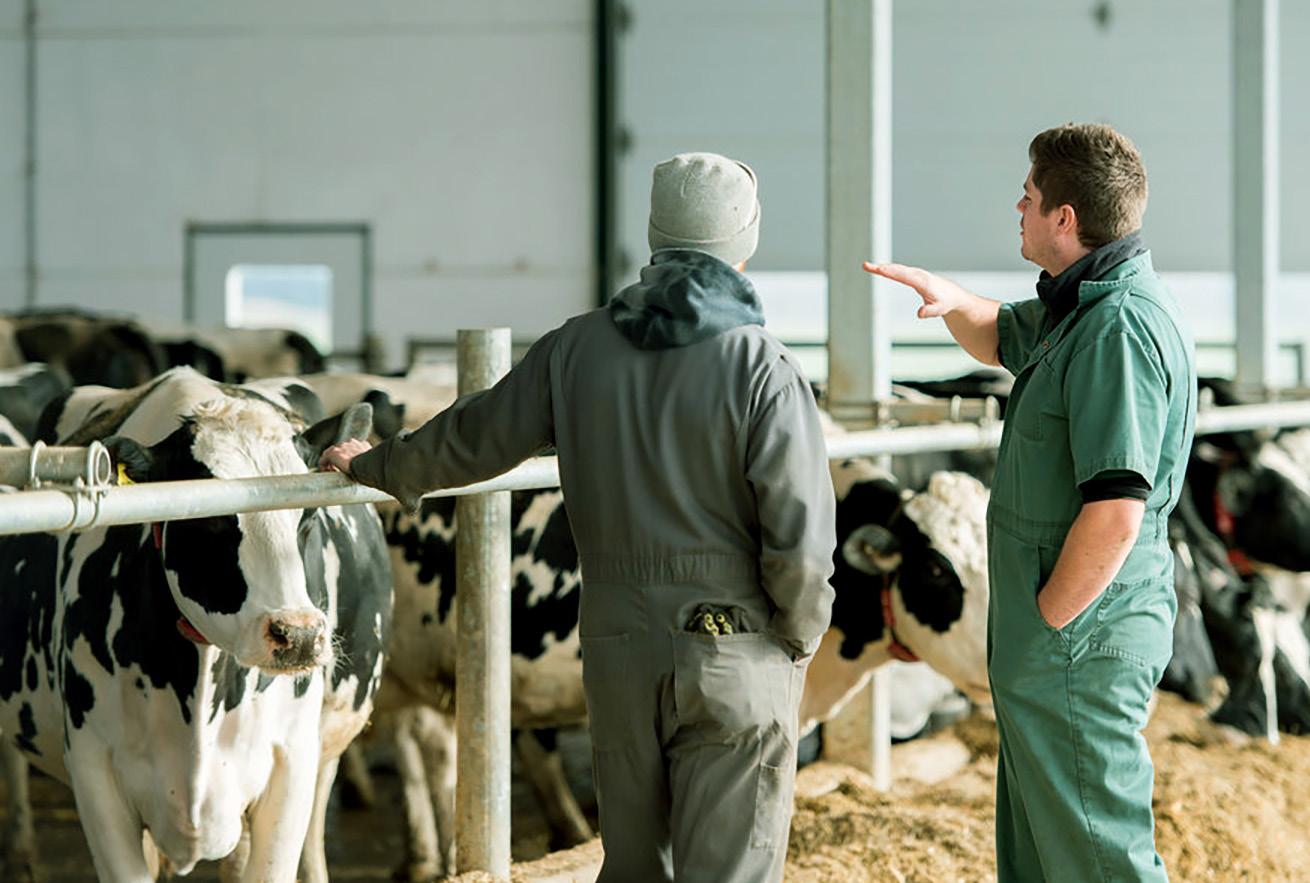

Campbell said the target audience for his podcast is mainly cow-calf beef producers, but he also plans to include some content that would be interesting to producers involved in feedlot cattle operations.

While Campbell acknowledges it may be too early to measure the podcast’s success, he does identify some advantages of podcasts.
THE BEST DEFENSE A STRONG OFFENSE PROMOTING THE HEALTH BENEFITS
By Ronnie P. Cons
Red meat is often wrongly portrayed as being unhealthy. some in the media as unhealthy or not environmentally friendly.
“We’re hoping that it’s another venue of providing that kind of [knowledge extension] information to producers,” said Campbell. “The advantage of it is that you don’t have to leave home and go to a meeting or have to be in front of a computer. You can do it in your truck or while you’re doing something else. That’s what I like about podcasts.”
The project is jointly funded by the Beef Cattle Research Council (BCRC) and Alberta Beef Producers. Campbell adds that the BCRC has a webinar series available for producers that focuses on numerous topics including nutrition, beef quality, and sustainability.
Vegan, fish and other non-meat diets have been proposed as healthier alternatives. The result of this onslaught of negative meat messages has influenced many families to cut back on their meat and poultry purchases. Perceptions may reality but truth trumps misinformation. Parents and other consumers want what is best for their health and that of their families. They are also aware that a lot of false information is out there and as such, are open to scientific facts that can correct their misconceptions.
The Beef Cattle Health and Nutrition podcast is available on Spotify, Apple, Google Podcasts, Amazon Music and other podcast providers.
liver, 625 spinach.
Iron found found absorption.
This provides an opportunity for retail meat departments to implement an instore ‘Healthy Meat Facts’ nutritional campaign to set the record straight and convince their customers that meat and poultry are actually good for one’s health and that they should increase rather than decrease their purchases of it. The campaign outlined below can have a direct impact on sales:
Campbell welcomes feedback on current episodes as well as suggestions for future topics: “If people have ideas or things they’d like to hear, that’d be great.”
2. Eat Being linked Dr. Charlotte California, Zinc is preserves 3. Boost Due to antibodies chronic
4. Power The protein Muscles building The protein growth
5. Meat Meat contains body cannot isoleucine, threonine, protein.
mg of iron, she would need just 300 grams of cooked bovine
https://www.mmequip.com
6. Eat Meat contains production functioning Say ‘hello’ acid, vitamin The line only apply meat health Facts’ and poultry. education Ronnie P. meat and

15 meatbusinesspro.com December 2022 MEATBUSINESSPRO
22 CANADIAN MEAT BUSINESS September/October 2017
AG CANADA LAUNCHES AFRICAN SWINE FEVER PREVENTION AND PREPAREDNESS PROGRAM
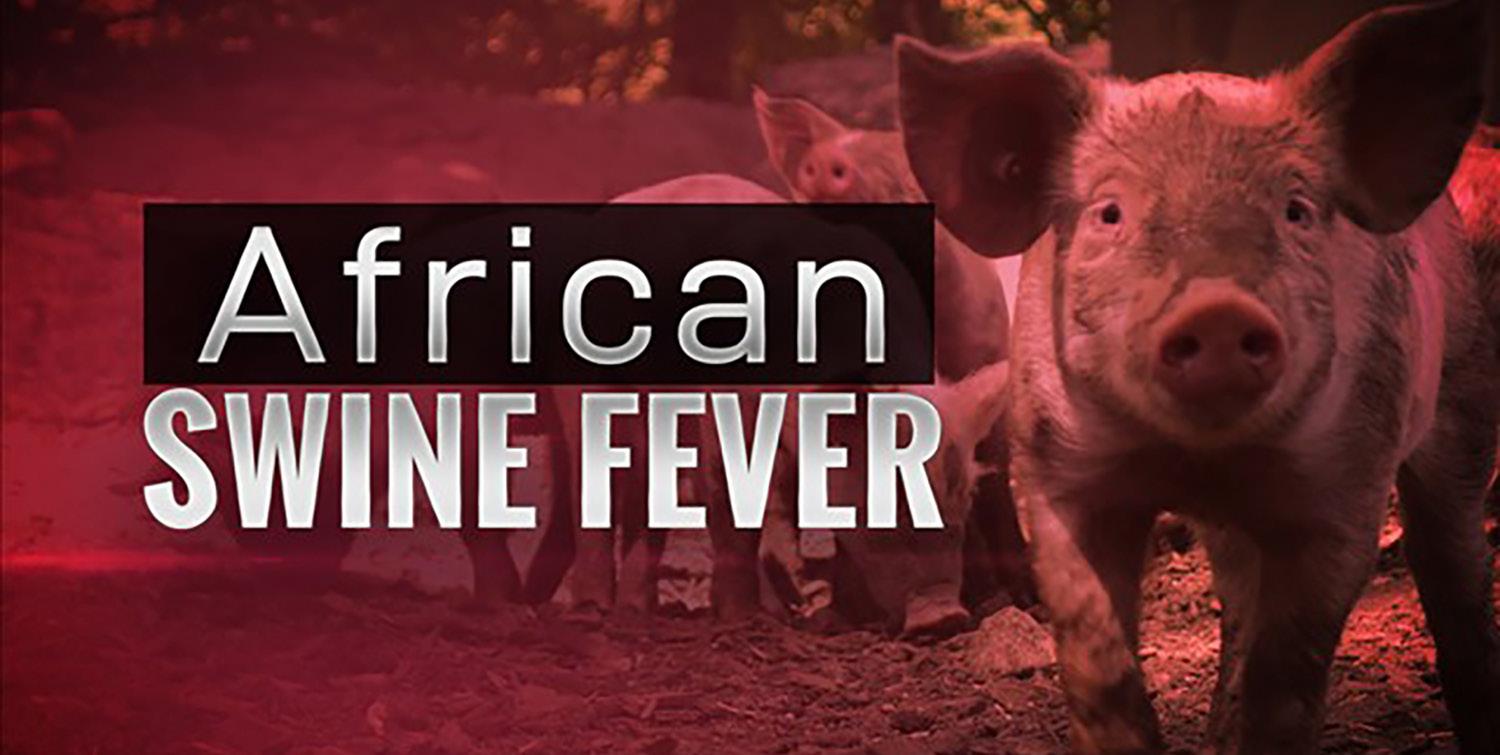
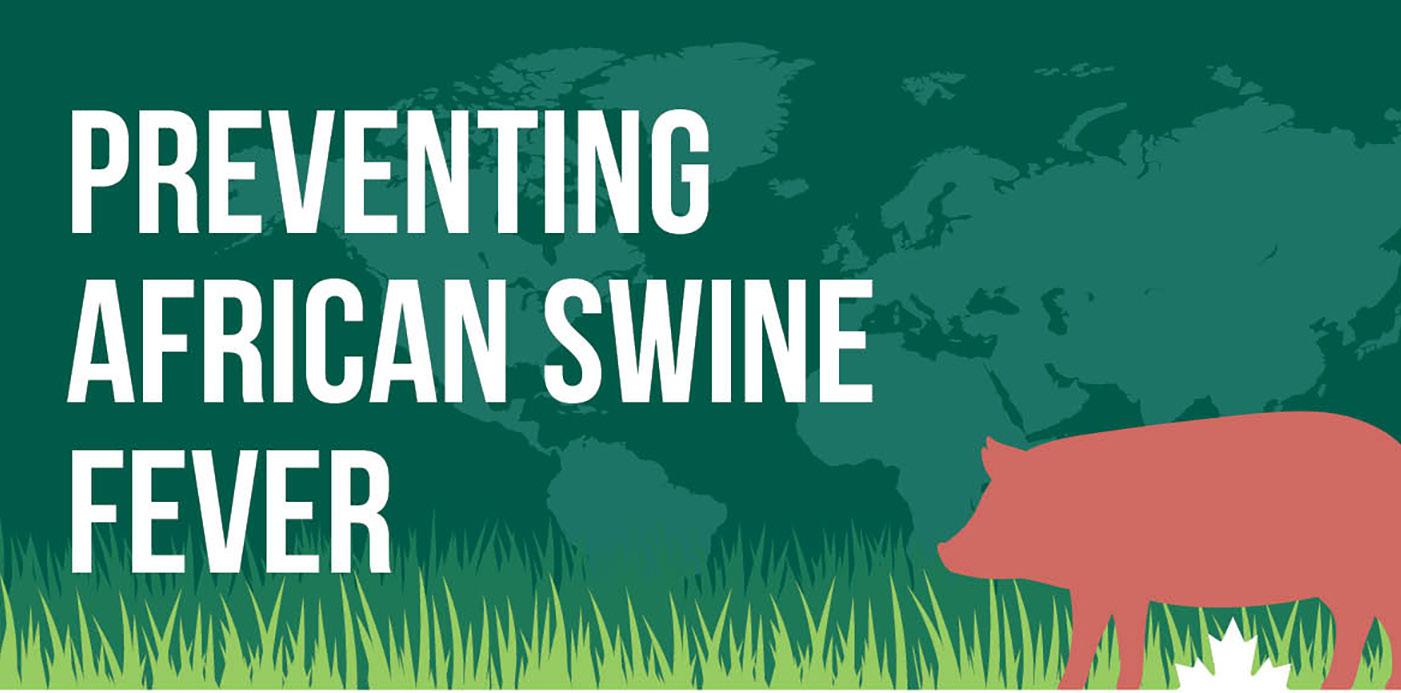
Eligible organizations can now apply for funding under the Government of Canada’s African Swine Fever Industry Preparedness Program (ASFIPP). The $23.4 million program is designed to help Canada's pork industry prepare for the possibility of African swine fever (ASF) entering the country.
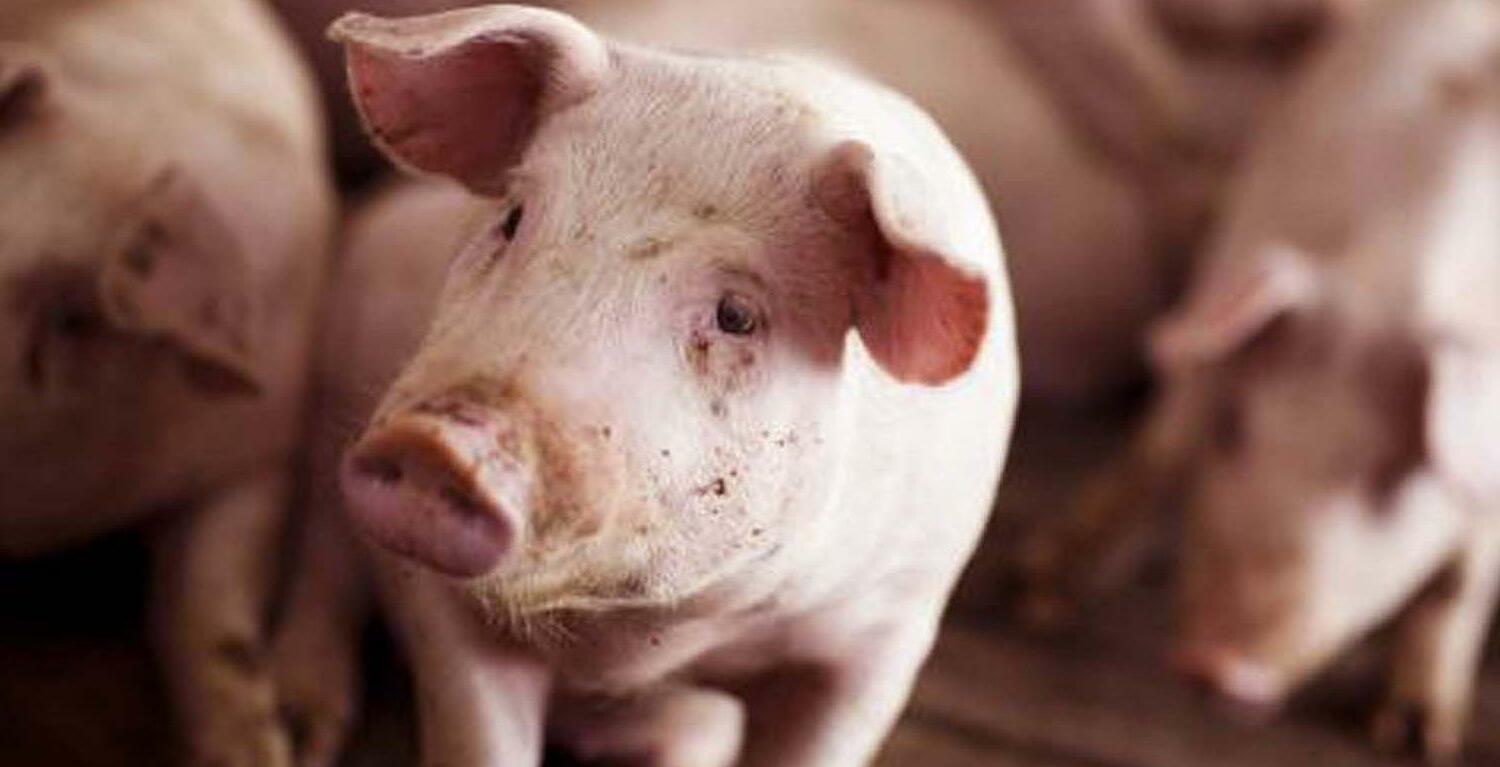
Funding for the new program was set aside in August 2022 to support projects such as biosecurity assessments and improvements, wild pig management, the retrofit of existing abattoirs, sector analysis and ASF-related research projects.
Applications from academic institutions, associations, businesses, Indigenous groups, and provincial/ territorial/municipal governments will be accepted until November 30, 2023, and the funding will be distributed over two years. Program information and details on how to apply can be found on AAFC’s website: Agricultural programs and services.
ASF is a fatal swine disease that spreads through both direct and indirect contact with infected pigs, pork, and pork by-products. No case has ever been found in Canada. Since 2018, however, ASF has spread across parts of Asia, Europe, and the Caribbean. The ASF virus cannot be transmitted to humans, and is not a food safety risk. But a single case of ASF in Canada would immediately result in the closure of Canada’s borders to pork exports, which accounts for 70 per cent of Canadian pork production.
Canada is recognized as an international leader when it comes to preventing and controlling the spread of foreign animal diseases into and within the country. This new program, combined with close collaboration among domestic and international partners, demonstrates the federal government’s continued leadership in preventing and preparing for ASF.
QUICK FACTS
• On August 26, 2022, the Minister of Agriculture and Agri-Food, the Honourable Marie-Claude Bibeau, announced an investment of up to $45.3 million to enhance efforts to prevent ASF.
• Preventing and preparing for ASF is a shared responsibility between federal, provincial, and territorial governments and industry. The Pan-Canadian ASF Action Plan is a collaborative plan which lays the groundwork for a timely and coordinated response to reduce the size of an outbreak and limit its impact
• The World Organisation for Animal Health (WOAH) has recognized CFIA’s National Centre for Foreign Animal Disease in Winnipeg, MB as a WOAH Reference Laboratory to address ASF – one of only seven Laboratories in the world with the designation.
• The CFIA has a network of 13 reference and research laboratories across Canada approved to perform ASF testing for surveillance purposes.
• The Canada Border Services Agency (CBSA) is Canada’s first line of defence, and has a mandate to facilitate trade and travel while keeping Canadians safe. Border services officers are trained to intercept prohibited goods.
The Beef Cattle Research Council (BCRC) is directed by a committee of beef producers from across the country with 14 members representing each of the provincial producer organizations that allocate part of the Canadian Beef Cattle Check-Off to research, plus one ex-officio member.
During a November 2022 BCRC meeting held in Guelph, Ontario, a new executive committee was named to of
16 MEATBUSINESSPRO December 2022 meatbusinesspro.com

https://www.cfib.ca
BCRC APPOINTS NEW EXECUTIVE COMMITTEE
The Beef Cattle Research Council (BCRC) is directed by a committee of beef producers from across the country with 14 members representing each of the provincial producer organizations that allocate part of the Canadian Beef Cattle Check-Off to research, plus one ex-officio member.


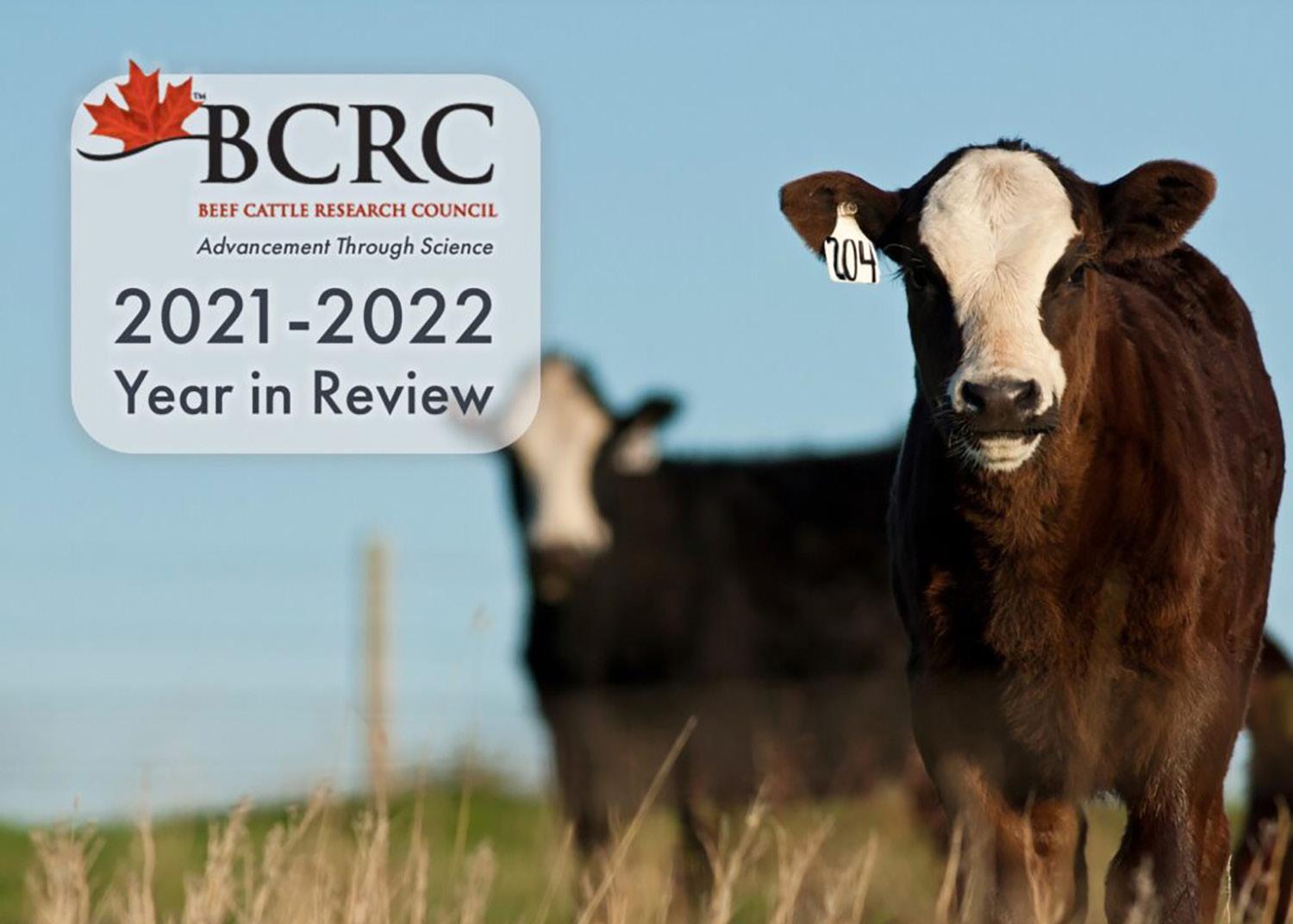
During a November 2022 BCRC meeting held in Guelph, Ontario, a new executive committee was named to provide leadership for the Council over the next year.
Craig Lehr, a beef producer from southern Alberta, has moved from vice chair to chair of the Beef Cattle Research Council. Craig’s family owns and operates Short Grass Ranches, a third-generation operation consisting of a 7,000-head backgrounding feedlot, a 1,200-head cow-calf operation as well as both irrigated and dryland farmland for feed and cash crop production.

Ron Stevenson, a beef producer from Walton, Ontario, has been named the BCRC’s new vice chair. Ron and his family operate a 100-head commercial cow-calf operation in the Great Lakes basin. His location as well as his off-farm position with Metzger Veterinary Services present unique challenges on his operation as well as distinctive opportunities for insights on the Council.
Fred Lozeman, a beef producer from Claresholm, Alberta, has been elected to a second term as the BCRC finance chair. His family operates a mixed farm including a cow-calf herd and feedlot. Fred brings a unique perspective to his operation and to the Council, with a PhD in diabetes research from the University of Oxford and having worked as a scientist in a Nobel Prizewinning lab at the University of Washington.
18 MEATBUSINESSPRO December 2022 meatbusinesspro.com
I’m not sure why the eastern associations wouldn’t have previously nominated anybody because there are many farms here on PEI doing every bit as much as we are as to attain a high level of sustainability. Anyway, we were very surprised when the PEI Cattleman’s Association nominated our farm.
Having completed two one-year terms as the BCRC chair, Matt Bowman has now moved into a past chair position on the Council. The Bowmans raise 125 Charolaiscross cattle, plus operate 650 acres of cash crop production and a pick-your-own strawberry patch, near Thornloe, Ontario. As a longstanding member of the Council, Matt has made significant contributions to the Beef Cattle Research Council and its research and extension activities.
CMB: And then you were attending the Canadian Beef conference in Calgary and you won.
DF: Yeah! That was a very nice moment for us. But I don’t like to use the word win actually. However, being recognized for our commitment was a real honour. If you want to know the truth, it was a pretty humbling experience. As I said to CBC when they phoned me after the conference, I was just floored, really couldn’t believe it.
“Each of the innovative producers from across the country who serve on the Council and BCRC Executive Committee are instrumental in setting the direction of Canada’s beef and forage research and technology transfer efforts,” said BCRC Executive Director Andrea Brocklebank. “Their leadership and continued service to the beef industry is vital and greatly appreciated.”
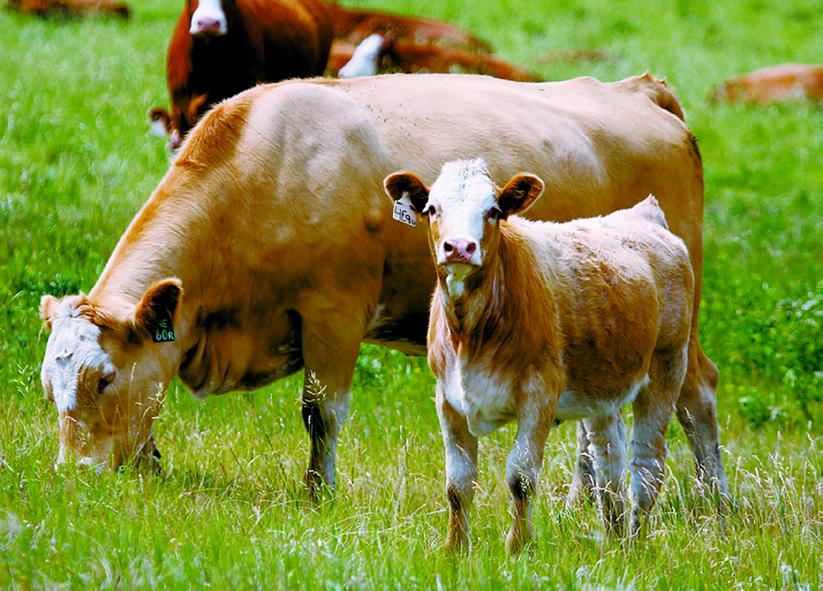
CMB: So now that you have been recognized, do you think that will draw more attention and garner more nominations out of Atlantic Canada
organization to recognize us. They treated all the nominees royally and it was a real class act. It was a wonderful experience.
Members of the Council are beef producers appointed annually by provincial organizations. While there is no limit to the number of years a Council member may be appointed to serve, executive committee terms are limited to a maximum of two one-year terms.
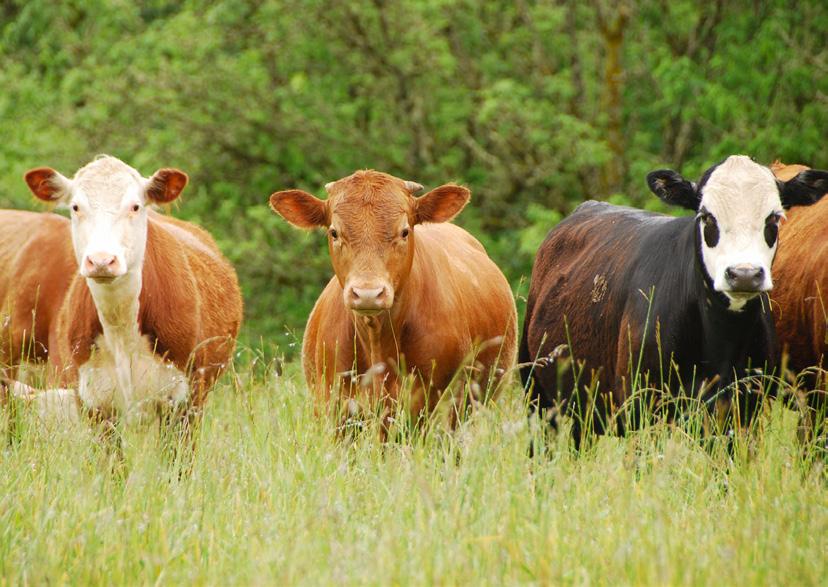
https://www.yesgroiup.ca

19 meatbusinesspro.com December 2022 MEATBUSINESSPRO
BUSINESS 17 meatbusiness.ca
September/October 2017 CANADIAN MEAT
DF: I don’t think being on the island
FCC:
FARM EQUIPMENT MARKET
ADJUSTING TO ECONOMIC ENVIRONMENT
Strong demand for farm equipment is expected to continue in 2023, as the market weathers rising interest rates and a weakening Canadian dollar, according to Farm Credit Canada’s (FCC) farm equipment market outlook.

“Producers will benefit from strategic planning as inventory levels for farm equipment remain below prepandemic levels, something we expect could continue through 2024.” said J.P. Gervais, FCC’s chief economist, noting tractor inventory levels are down 42 per cent and combines are down 47 per cent from the five-year average. “This equipment demand is supported by strong farm cash receipts, while inventory is hampered by the supply chain disruptions, we saw over the past two years.”


The used equipment market has seen increased demand because of the pandemic-related shutdowns. With limited availability of new equipment and parts, producers were adapting by having additional used equipment available for parts if needed.
Equipment manufacturers are expected to increase production of new equipment due to the changing economic environment providing the opportunity for inflationary pressures in the used equipment market to moderate.
As for new equipment, the Canadian dollar has a direct impact on equipment prices.
“Most new tractors and combines sold in Canada are manufactured south of the border, so an expected depreciation of the loonie through 2023 should lead to price increases on farm machinery,” Gervais explained. “This is also the result of inflationary pressures in the supply chain that occurred in the last half of 2022.”

20 MEATBUSINESSPRO December 2022 meatbusinesspro.com
While the depreciating loonie makes new tractors and combines more expensive, producers can take some solace in the fact that a depreciating loonie also has a positive effect on farm commodities destined for export.
Farm equipment sales for 2023 are projected higher for high horse-powered (HP) tractors, combines, and implement sales driven by strong crop receipts:
• 100+ HP tractor sales to rise 8.7%
MARKETS
• 4WD tractor sales to rise 13.9%

• Combine sales to rise 19.3%

Proposed 30,000-square-foot beef abattoir in Cloverdale would be B.C.’s largest such facility
By Amy Reid, Peace Arch News
Strong commodity prices will continue to support the demand for farm equipment, offsetting the impact of higher interest rates and a lower Canadian dollar. The used equipment market is expected to stay robust for most of 2023 and into 2024.
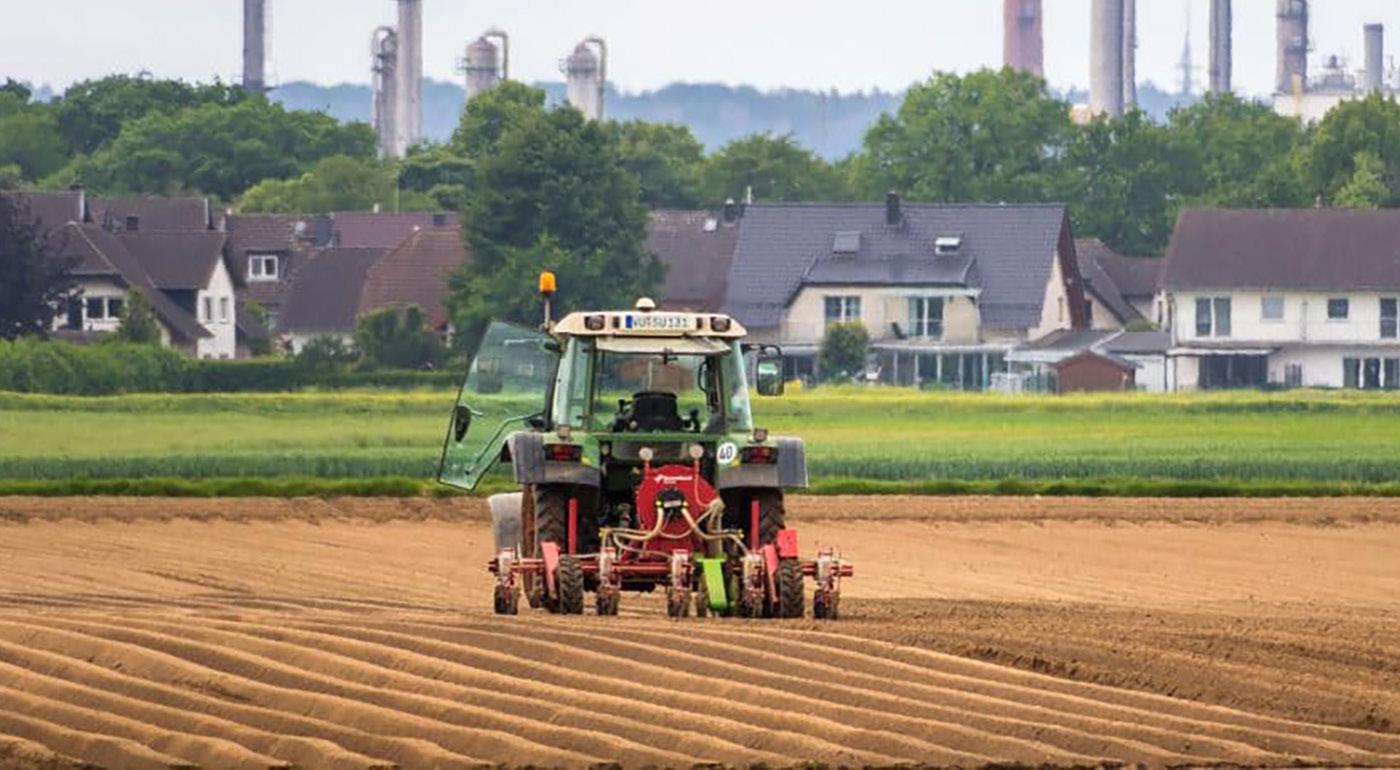
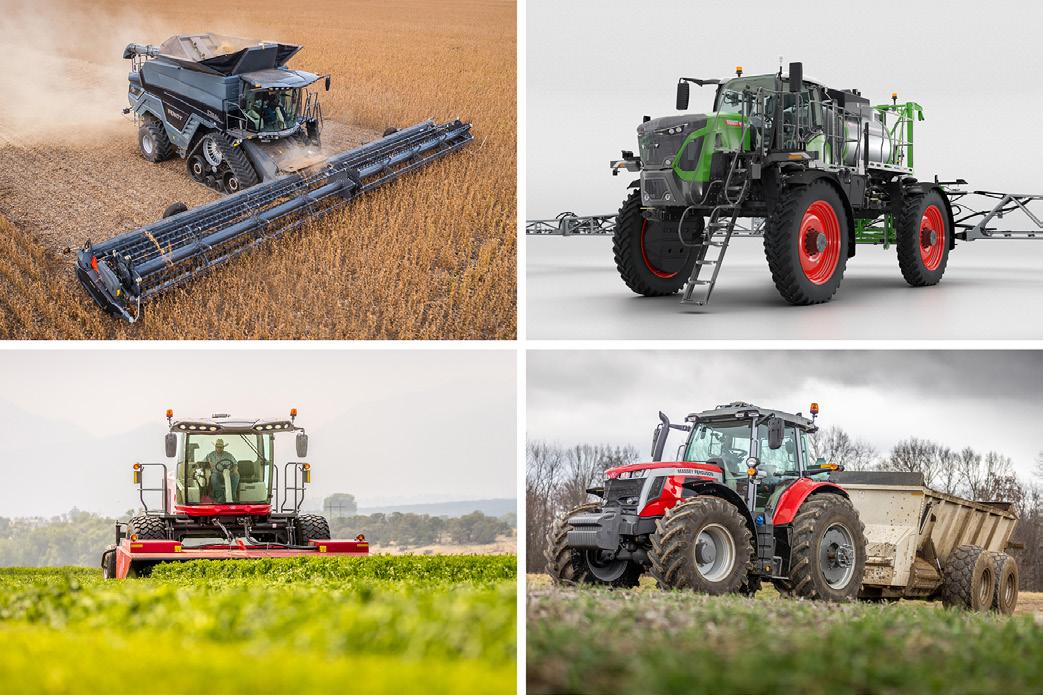
A federally licensed beef processing facility is in the works in Surrey, BC.
“There’s a new building coming forward, a new abattoir, I
• Canadian agricultural implement manufacturing to rise 32.2%
so as to not emit odours. And while there is an operational 6,000-square-foot abattoir on the property now, it’s can only process a limited number of cattle.
However, small HP tractor sales, which are largely driven by the health of the Canadian economy, are expected to slow in 2023:
• Less than 40 HP tractor sales to decline 0.4%
• 40 – 100 HP tractor sales to rise 0.4%
Chris Les is general manager of Meadow Valley Meats, the company behind the project. Meadow Valley Meats is seeking a Canadian Food Inspection Agency license for the proposed abattoir, to become a federally registered meat establishment and expand the operation. This would allow the meat products to be transported beyond B.C.’s boundaries.
By sharing economic knowledge and forecasts, FCC provides solid insights and expertise to help those in the business of agriculture and food achieve their goals. For more economic insights and analysis on the top trends to watch for in Canada’s agriculture and food industry in 2022, visit FCC Economics at fcc.ca/Economics.
“Our focus is on trying to bring a more efficient, sustainable local product to the market, realizing we can do that now in a very limited sense,” said Les. “I caution people when talking to them and they say, ‘What a big plant, that’s going to go allow you to go mainstream.’ Well, yes, if you look in the context of B.C., but this is still a very niche plant and we’ll serve a niche industry for producers and for the market. It’s certainly not going to be a monstrosity of a plant but it’ll be a big upgrade from the site currently.”
21 meatbusinesspro.com December 2022 MEATBUSINESSPRO
the ability to not have to ship an animal to Alberta to have Agricultural and Food Sustainability Advisory Committee.”
Agricultural Land Reserve at 5175 184th St. The planned 30,000-square foot abattoir in Cloverdale would process up
small by industry standards, compared to the largest meat
The proposed facility would be fully enclosed and designed
SURREY SLAUGHTERHOUSE
NEW
‘WOULD OPEN DOOR’ TO NEW BEEF
Continued on page 32
https://www.tcextrade.com
MEAT & POULTRY ONTARIO JOINS BIOENTERPRISE


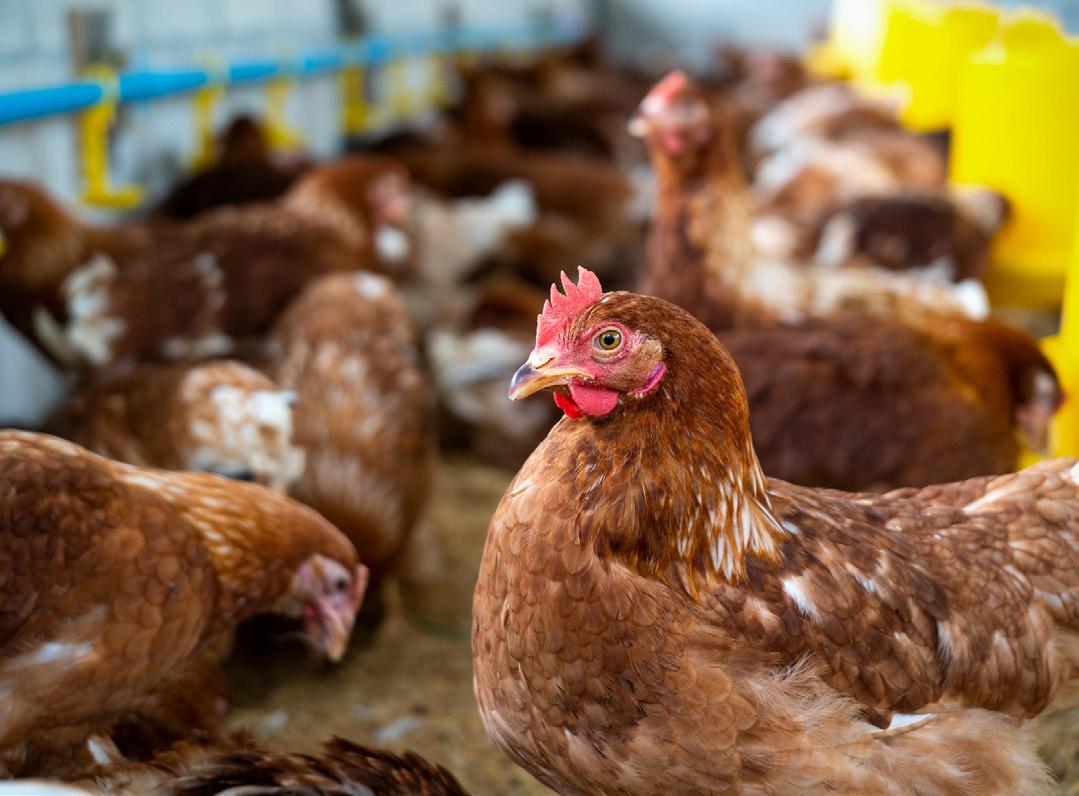
CANADA
Meat & Poultry Ontario has joined Bioenterprise, Canada’s Food & Agri-Tech Engine, as a collaborative partner. The two organizations have signed a Memorandum of Understanding (MOU) that will support research and innovation in Ontario’s meat processing industry.


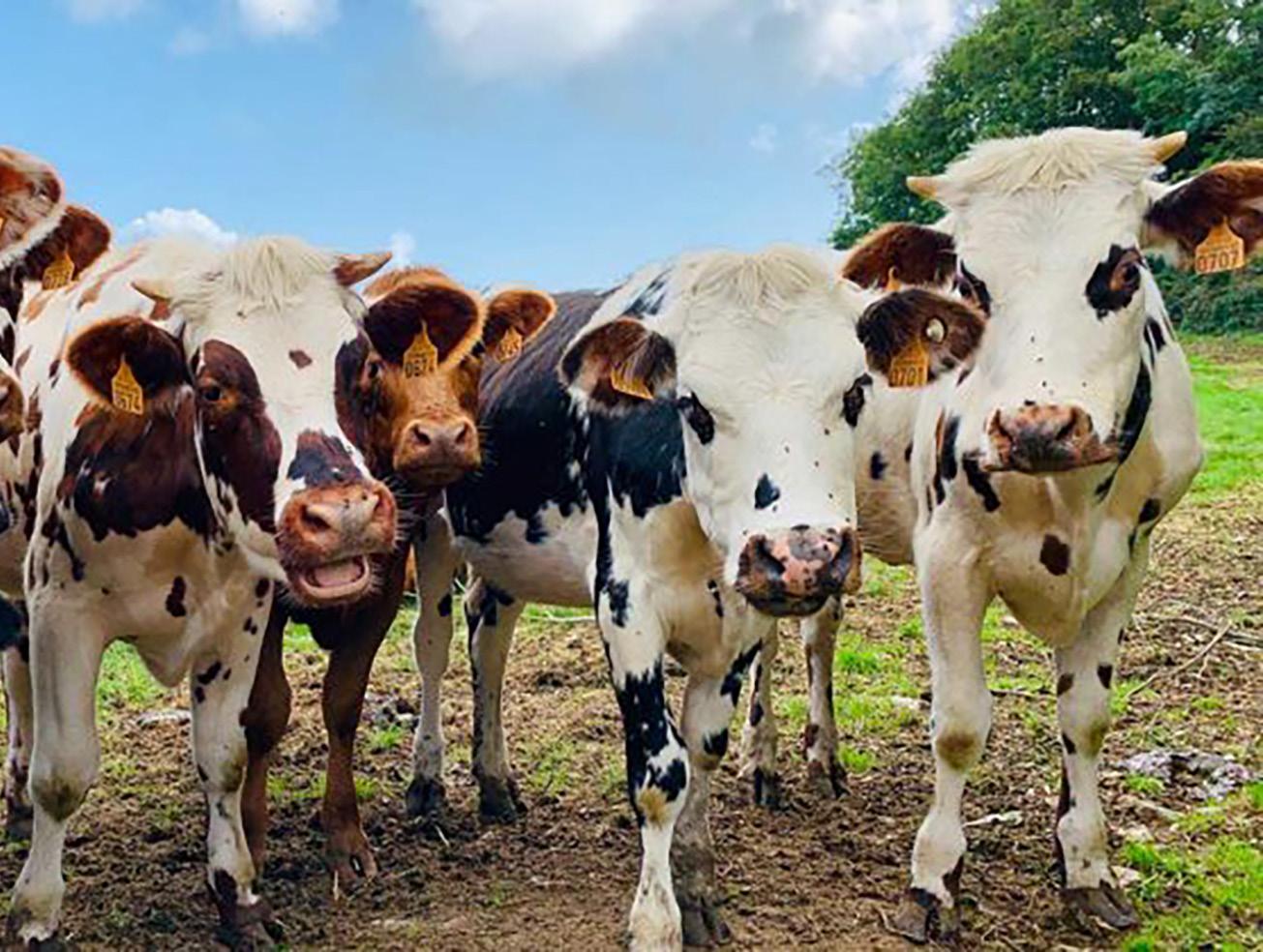
Meat & Poultry Ontario is launching the new Centre for Meat Innovation and Technology (CMIT) in collaboration with the University of Guelph. CMIT will provide training and partnership opportunities that support product and process development and adoption of new technologies, as well as showcase meat science research.
Meat & Poultry Ontario represents the interests of meat and poultry processors, abattoirs, butcher shops and retail meat outlets in the province, as well as related suppliers. This includes government advocacy, as well as providing regulatory and technical support to its members and working to address industry-wide challenges like labour, training and competitiveness.
“Bioenterprise welcomes the opportunity to work closely with Meat & Poultry Ontario to promote the new Centre and support innovation in the sector,” says Bioenterprise Canada CEO Dave Smardon. “The lack of available skilled labour is a serious challenge facing meat and poultry processors across all of Canada and we hope the Engine’s network will help foster new partnerships and growth opportunities nationwide.”
22 MEATBUSINESSPRO December 2022 meatbusinesspro.com
“This new partnership with Bioenterprise will make the Engine’s national network and its Canada-wide expertise and resources available to Meat & Poultry Ontario members, as well as help us get the word out about the new Centre,” says CMIT Director Luis Garcia. “Although we are located in Ontario, we welcome opportunities to collaborate with stakeholders and businesses across Canada and the Engine will play a key role in helping to facilitate those opportunities.”
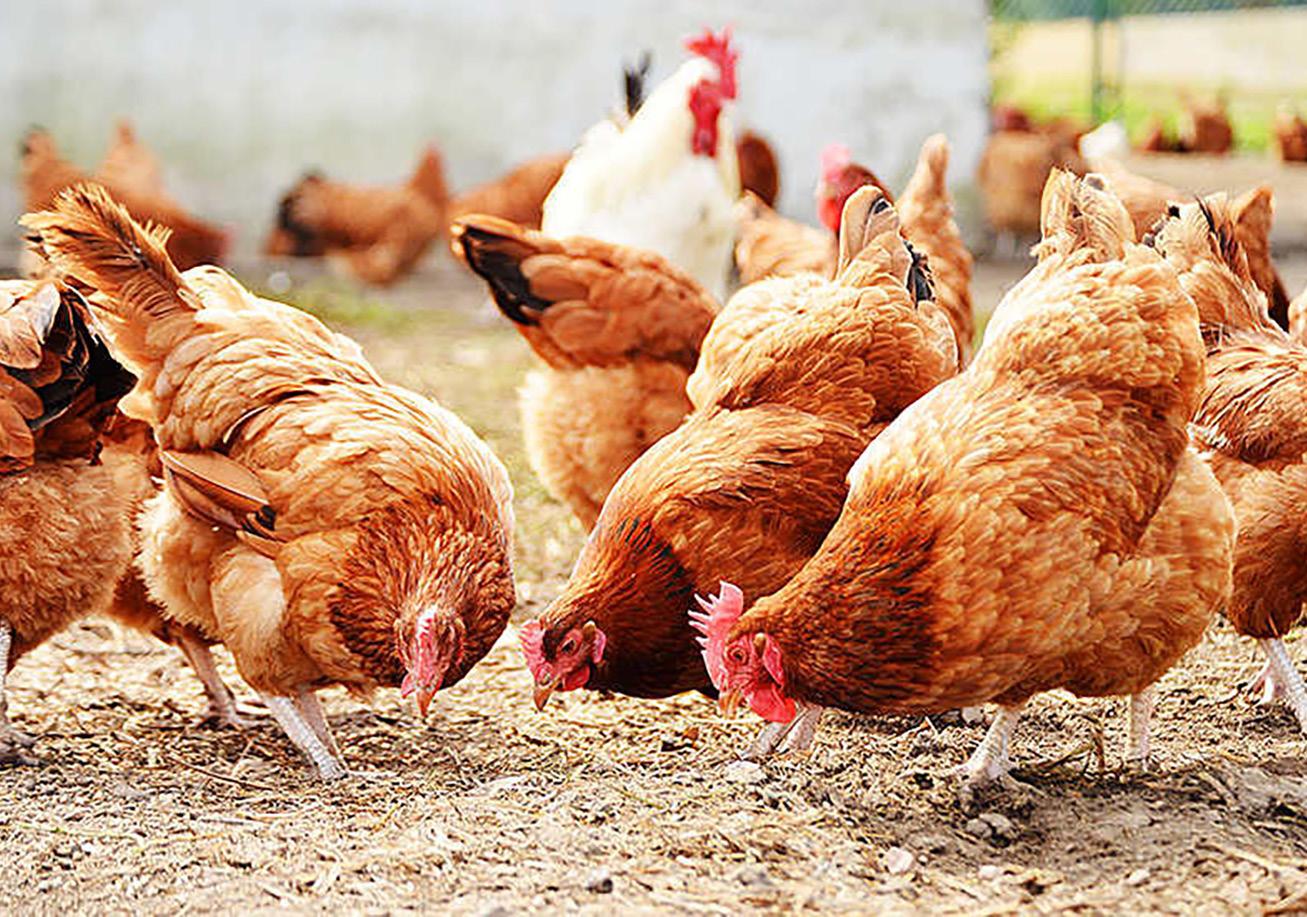

Bioenterprise Canada brings 20 years of industry experience and a national network of research institutions, academia, mentors and experts, funders and investors, government, and industry partners to help small and medium-sized businesses in Canada’s agri-food sector connect, innovate, and grow.
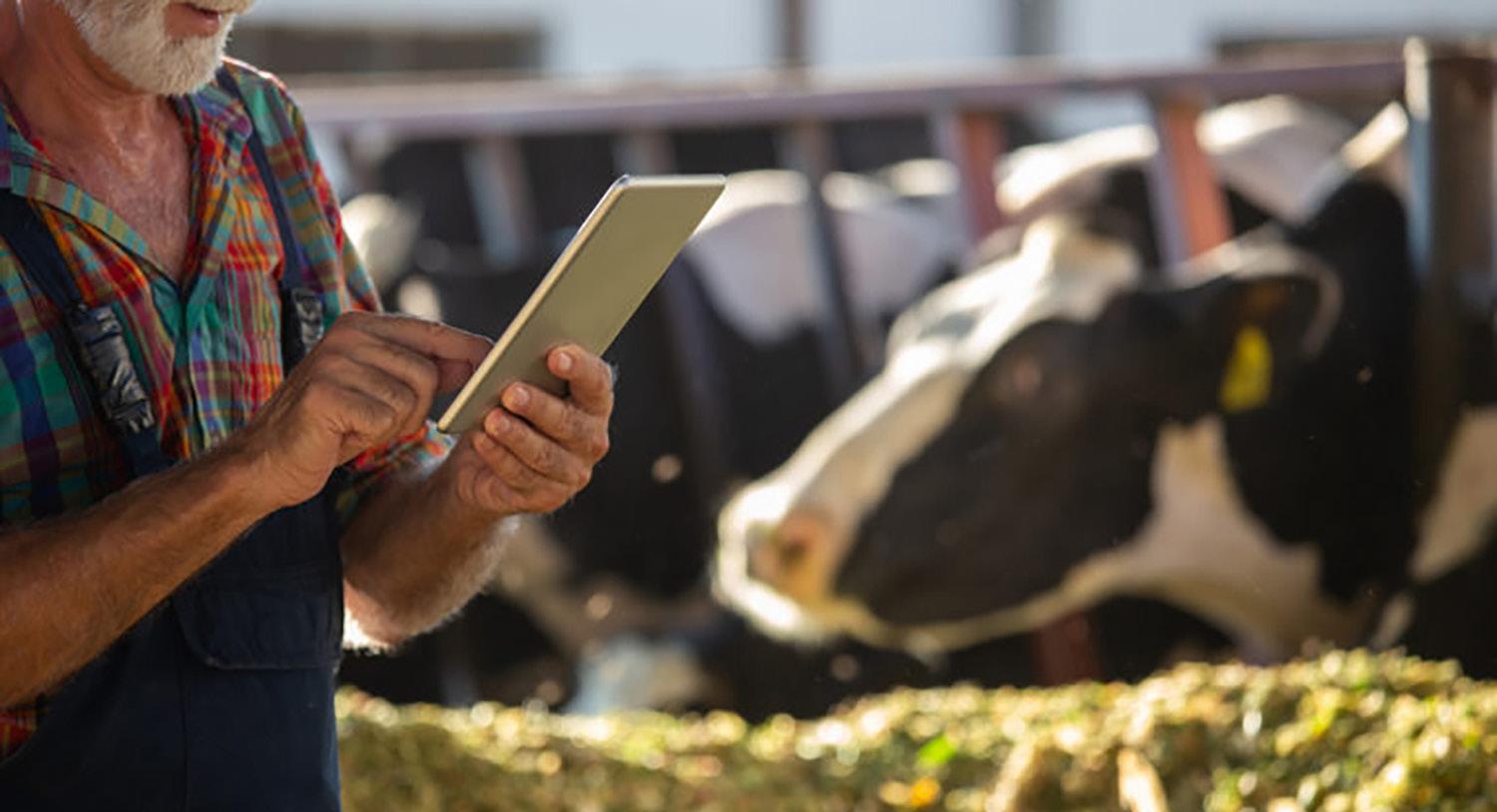
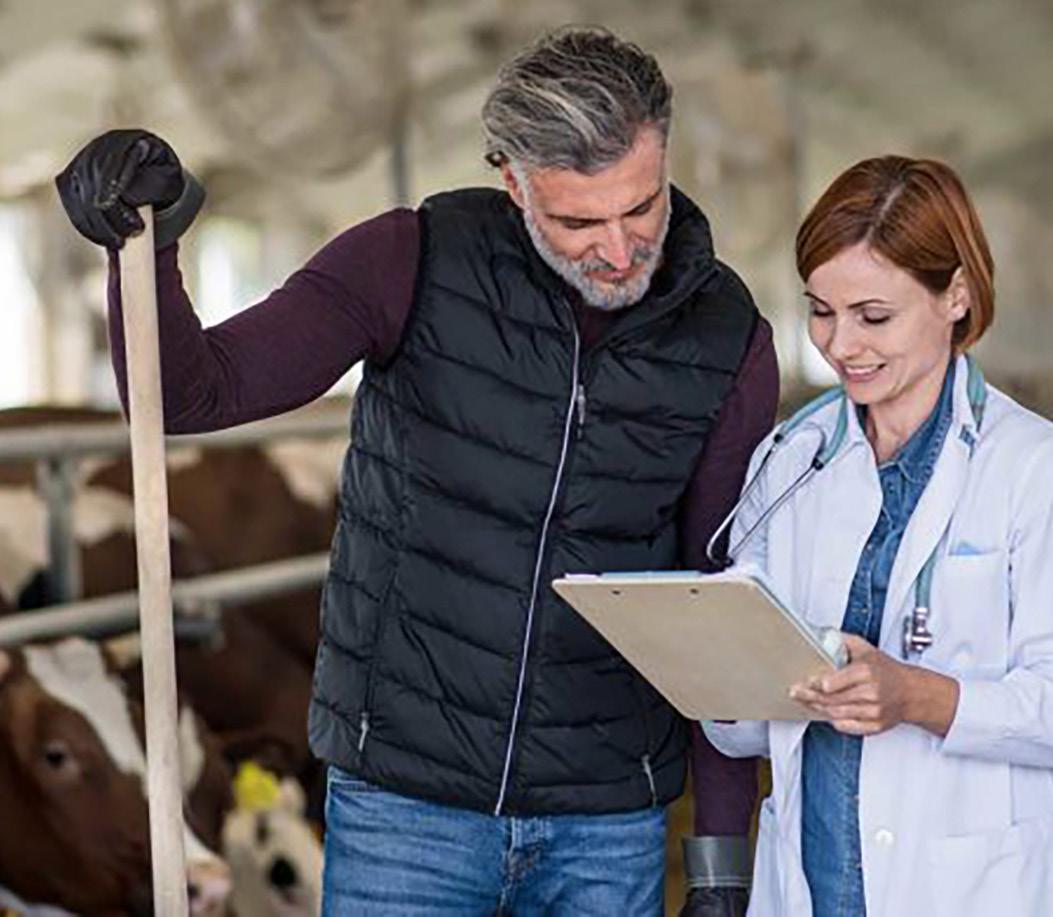
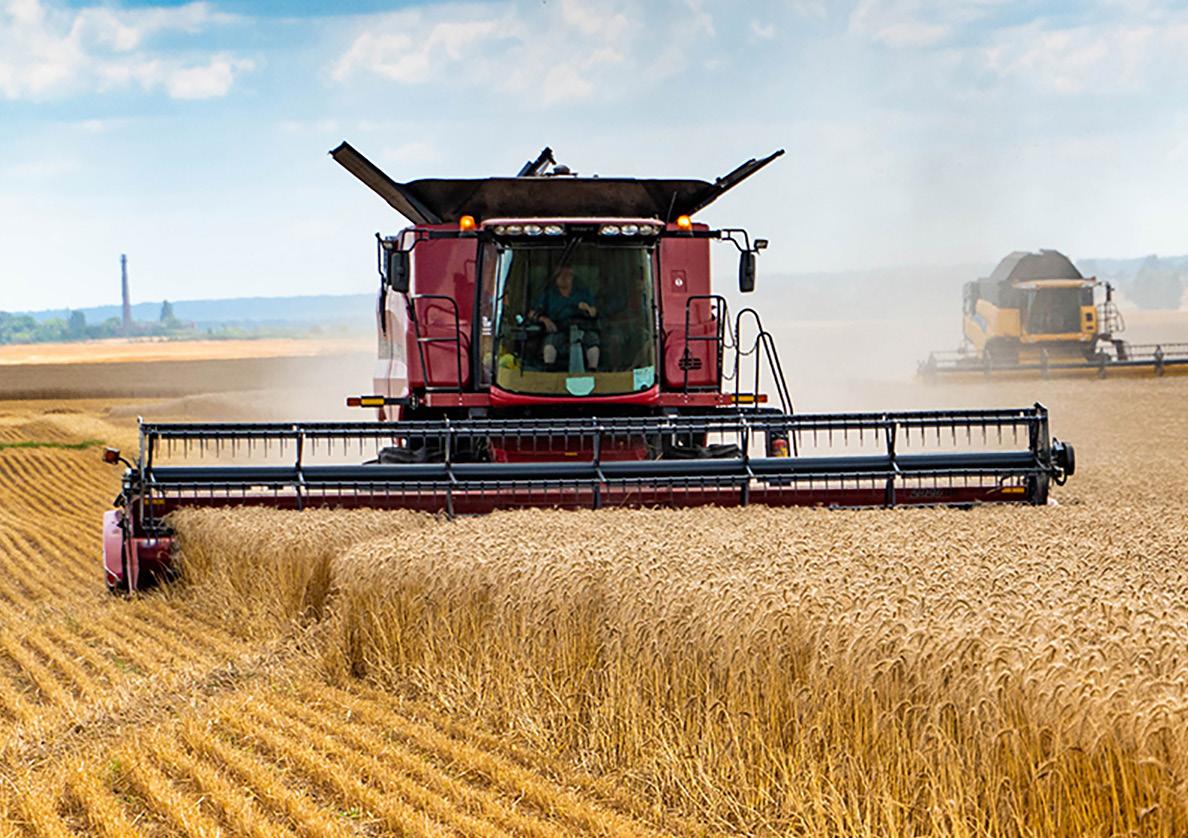
Both organizations will look for opportunities to support each other’s activities and work together on innovation initiatives of mutual interest that support innovation and adoption of new technologies in the agriculture, agri-food and agri-technology sectors.
Meat & Poultry Ontario is the representative voice of Ontario’s meat industry. The association is comprised of meat and poultry processors, wholesalers, and retailers; industry suppliers; and not-for-profit organizations that support MPO’s objectives. Ontario’s meat and poultry sector employs 25% of Ontario’s food and beverage processing industry — the single largest manufacturing employer in Ontario — and generates $11.2 billion of the province’s $45 billion food and beverage processing industry revenue.
23 meatbusinesspro.com December 2022 MEATBUSINESSPRO
Rising cost of doing business, war, and climate change – 2022 was a year to prove the unending resilience of Canadian agriculture

This year was another one for the books. Back in January, CFIB asked our members how they were feeling about the future of their business as the 2022 year began. Just over half (53%) said that they were hopeful, with an additional 16 per cent having no expectations for the year as they were ready to just roll with whatever the year brought (and it was a lot).

As we near the end of 2022 and slowly make our way out of the pandemic, its affects are still being felt by many agri-businesses. Canadian Federation of Independent Business’s (CFIB) Small Business Recovery Dashboard saw 73 per cent of agri-businesses still burdened with pandemic debt, and over three in five (76%) still under pandemic-related stress.
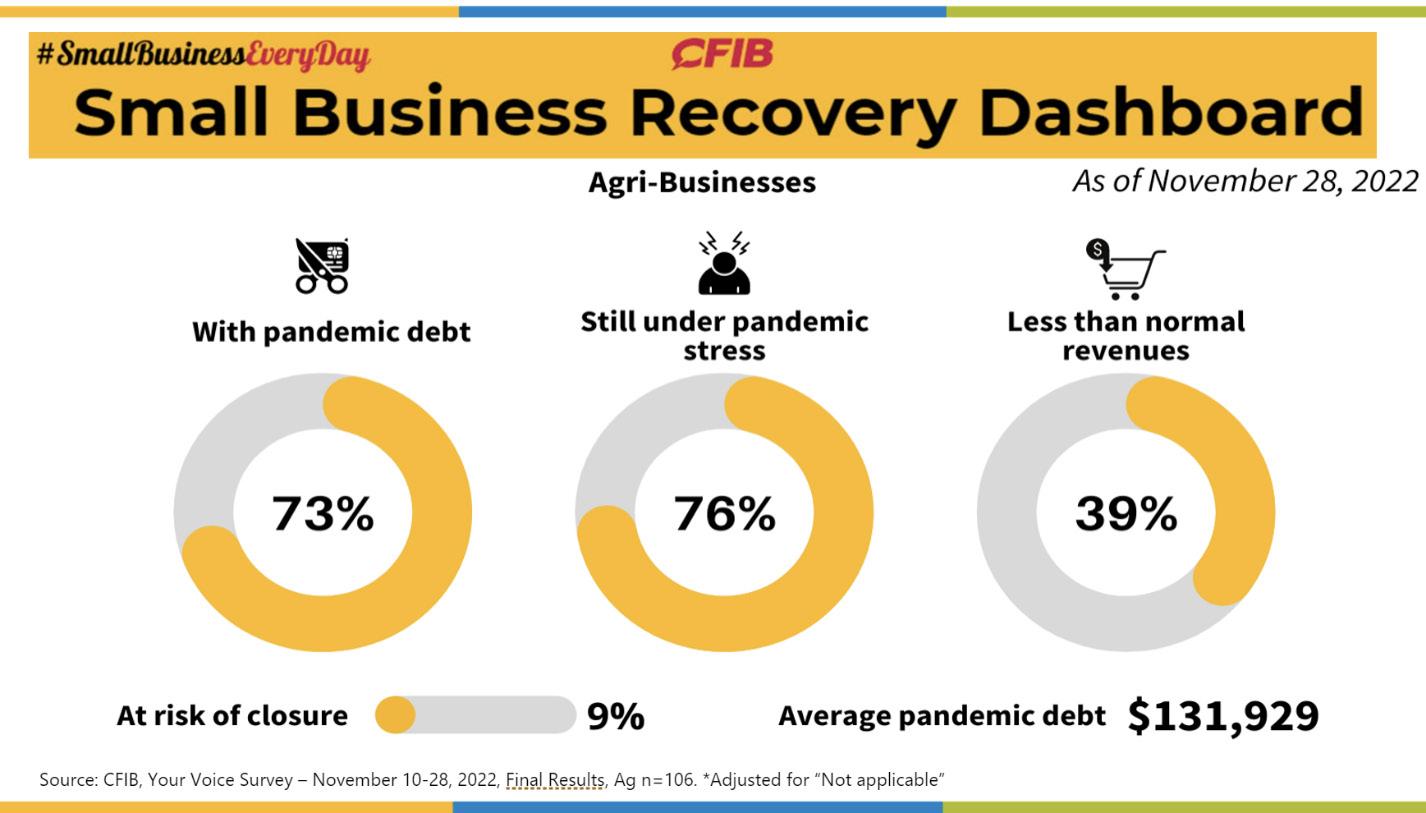
Looking back at how the year began, if someone told me that Canada’s agri-businesses were able to produce as much as they did, I am not sure I would have believed them.
Even without considering pandemic, huge obstacles remain before reaching any sort of predictability for our food producers. Challenges include the ever-rising cost of doing business, the ongoing war in Ukraine and climate change, just to name a few. Despite this, farmers, ranchers, and other agri-business owners have
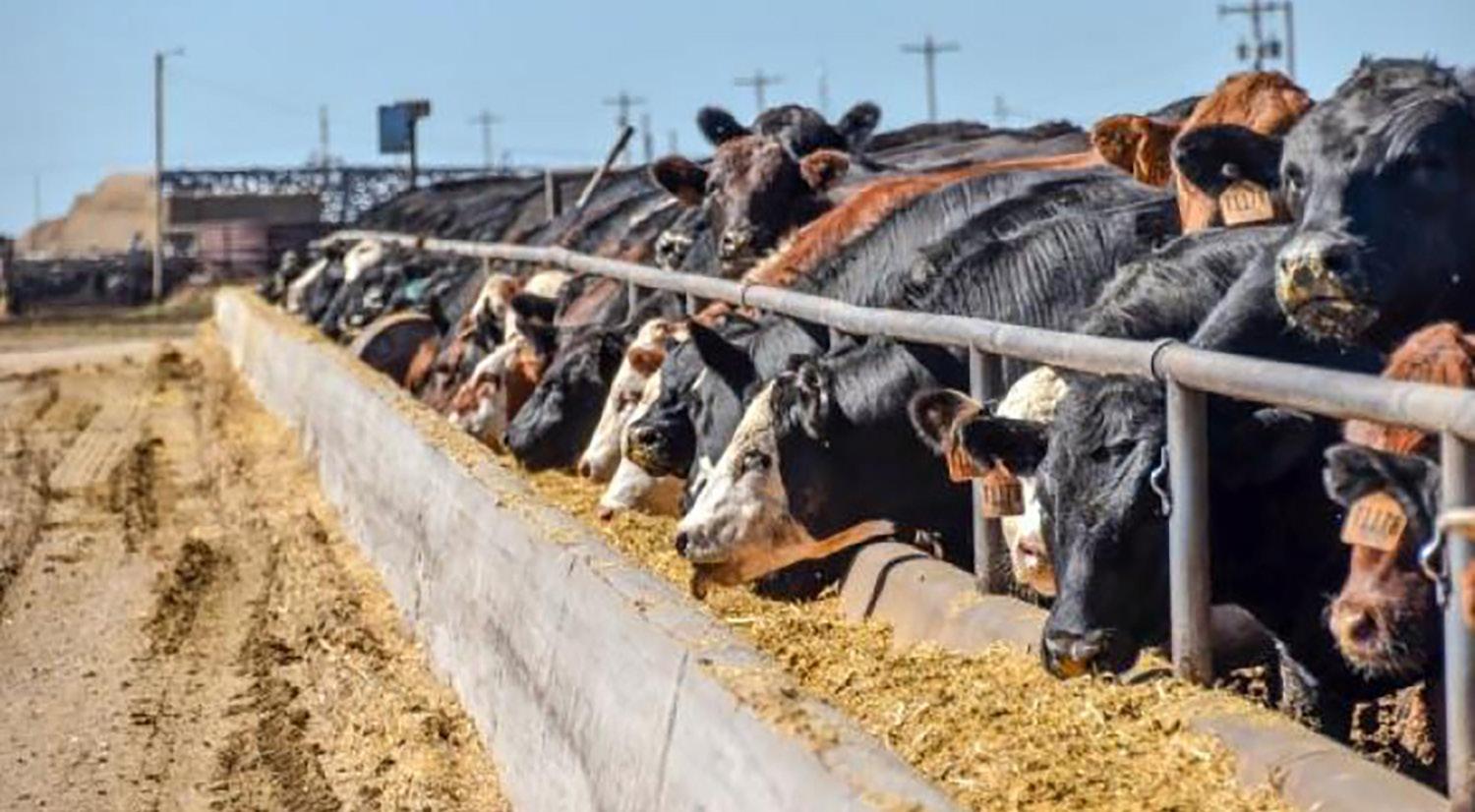
Unpredictable environmental conditions are a hurdle farmers must face every year. After the disastrous drought conditions of the 2021 season, many were worried about another year of poor weather, and environmental conditions of Spring 2022 were indeed challenging in many regions. Flooding in Manitoba was the worst it had been in over a century, costing tens of millions of dollars in damages and setting seeding back several weeks (CBC, June 3, 2022). Flooding in Saskatchewan saw a seeding delay for 17 per cent of crops with many low-lying areas having to be completely left unseeded due to standing water (CBC, June 3, 2022).
A second hurdle for agri-businesses in 2022 was the unrelenting rising cost of farm inputs, something that has been of top concern for agri-businesses all year round.
24 MEATBUSINESSPRO December 2022 meatbusinesspro.com
proven that they are able to not only overcome but succeed and excel in what they do – feeding Canadians and the World.
END OF YEAR WRAP UP FOR AGRICULTURE 2022
From a January CFIB survey, 90 per cent of agribusinesses quoted rising prices of inputs as their top concern for 2022. According to Statistics Canada, we already saw a near 17-point jump in the national farm input price index from the end of 2021 to mid 2022, and prices are expected to continue rising in 2023.
“The cost of inflation with reference to inputs like raw goods, availability, fuel, and shipping charges has been increasing so rapidly that it has been very difficult to manage our product costs and prices to our customers. I have not seen this in 40 years of running a business.”
Agri-Business Owner, Manitoba
One of those expensive inputs that attracted prominent news coverage this year was fertilizer. In March 2022, the Canadian government placed a 35 per cent tariff on all Russian fertilizer shipments to Canada –the only country in the G7 to do so. Not long after this announcement, the government also revealed its Fertilizer Emissions Reductions Targets to help achieve Canada’s national target in reducing absolute greenhouse gas emissions associated with nitrogen fertilizers by 30 per cent below 2020 levels by 2030. All of this despite efforts and initiatives, like 4R nutrient stewardship, that farmers have continued to pursue in preserving the environment for generations.
Russia’s invasion of Ukraine this February had, and still has, massive consequences for worldwide agriculture. The ongoing war did not just impact the cost of fertilizer, but also boosted the cost of several crops. With that said, this year Canadian farmers and agribusiness owners saw the need to fill the hole in grain and potash production in the global market, and they rose to the occasion.
Even with skyrocketing prices of inputs and flooding across the prairies, many of our agricultural producers were able to come out of 2022 with good yields. Data from Statistics Canada shows that production increased in every crop across Canada compared to
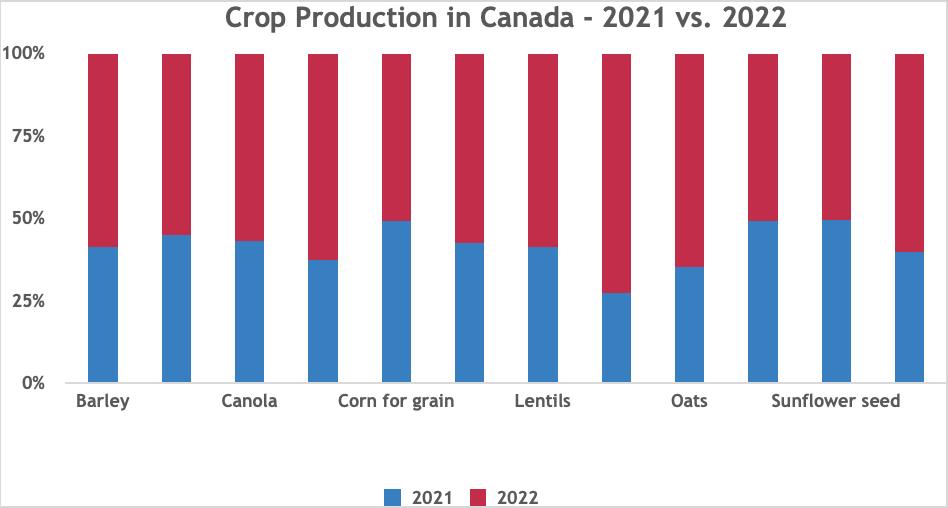
2021 (Statistics Canada, 2022). Unfortunately, cattle and hog inventories struggled to improve numbers this year, feeling the lasting effects of 2021 drought conditions, coupled with ongoing processing backlogs (Statistics Canada, 2022).
From the rising cost of doing business, international war overseas, and climate change just to name a few, the obstacles facing many of our food producers this year were tremendous. However, 2022 proved that the resolve of our agri-business owners and operators is even greater.
To outline every obstacle facing agriculture in 2022 would take a full report. However, what this year did show Canadians and those abroad, is that Canadian agricultural producers are tough, they are professionals, and they are resilient.
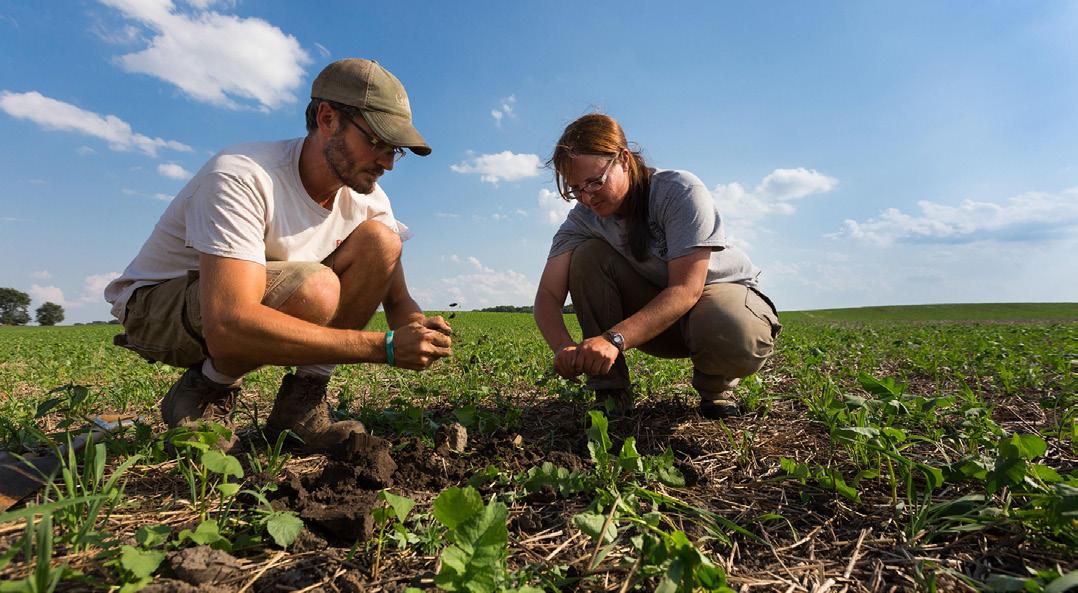
Let us continue the fight to feed the world in 2023.
Share your feedback with CFIB by contacting our Business Help Line at cfib@cfib.ca or call 1-888-234-2232.
Get involved in our campaign to support Bill C-234 to help support farmers and protect our food supply: https://initiatives. cfib-fcei.ca/en-ca/saveourfarms
Not a member? JOIN CFIB today for more help and information.
Taylor Brown is the Policy Analyst, Western Canada
for the Canadian Federation of Independent Business (CFIB). CFIB is Canada’s largest association of small and medium-sized businesses with 95,000 m embers (6,000 agri-business members) across every industry and region. CFIB is dedicated to increasing business owners’ chances of success by driving policy change at all levels of government, providing expert advice and tools, and negotiating exclusive savings. Learn more at cfib.ca.

25 meatbusinesspro.com December 2022 MEATBUSINESSPRO
& Agri-Business
https://www.yesgroup.ca
201 Don Park Road Unit 1, Markham, Ontario, L3R 1C2 Phone: 905-470-1135 1-800-465-3536 Fax: 905-470-8417 Website: www.yesgroup.ca email: sales@yesgroup.ca
Remco and The Yes Group Protecting
your Customers
Remco products are colour-coded to help divide the production cycle into different zones. By identifying these zones as different cleaning areas, the movement of bacteria around the production area can be blocked.




Our products were developed with the Hazard Analysis Critical Control Point (HACCP) in mind.
No matter what colour-coding plan is implemented, Remco Products from The Yes Group provides significant added value at no additional cost. From scoops to squeegees, from brushes to shovels, we have the products and the colours to enhance any professional quality assurance program.

26 MEATBUSINESSPRO December 2022 meatbusinesspro.commeatbusinesspro.com 31 September/October 2018





































































































